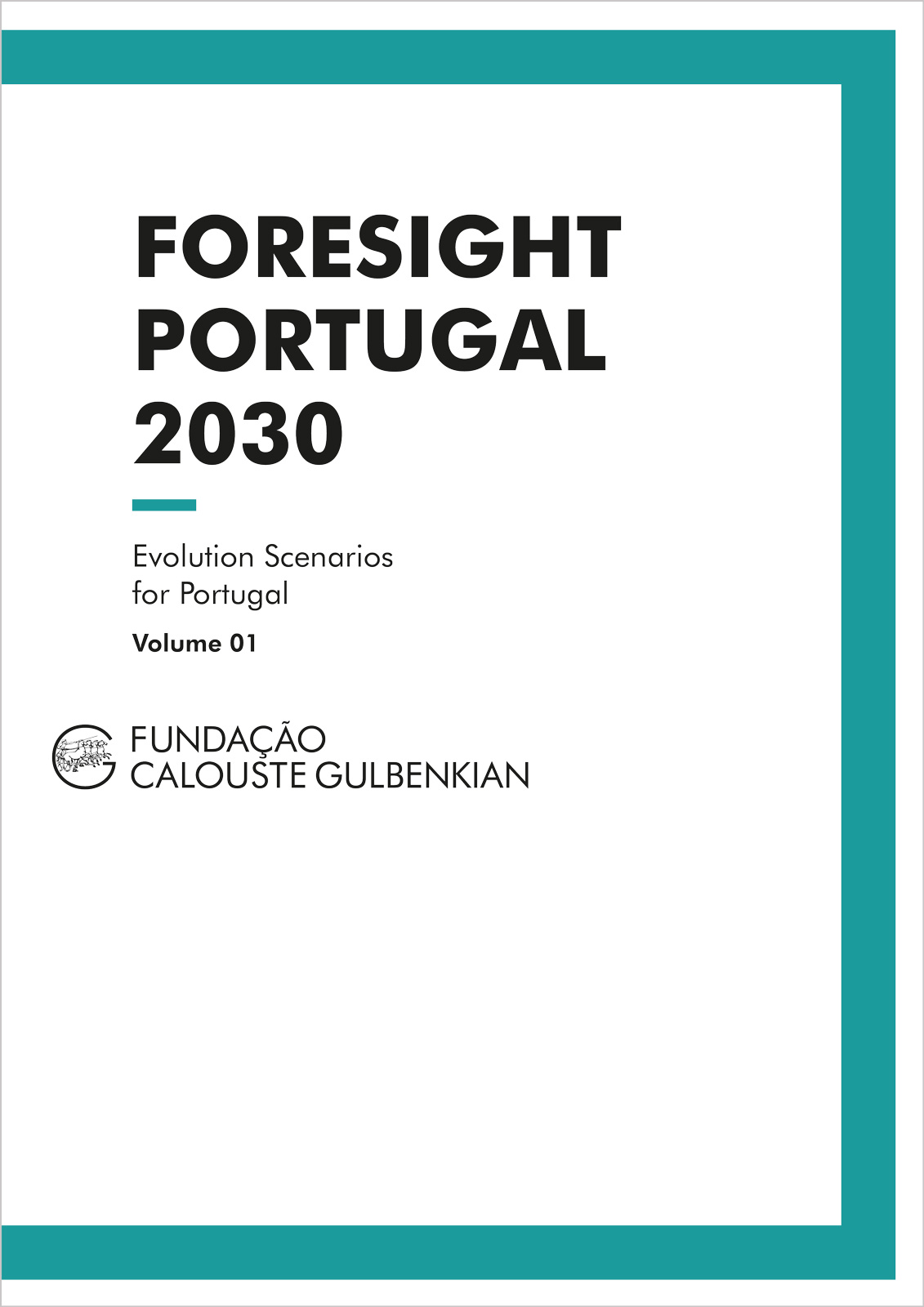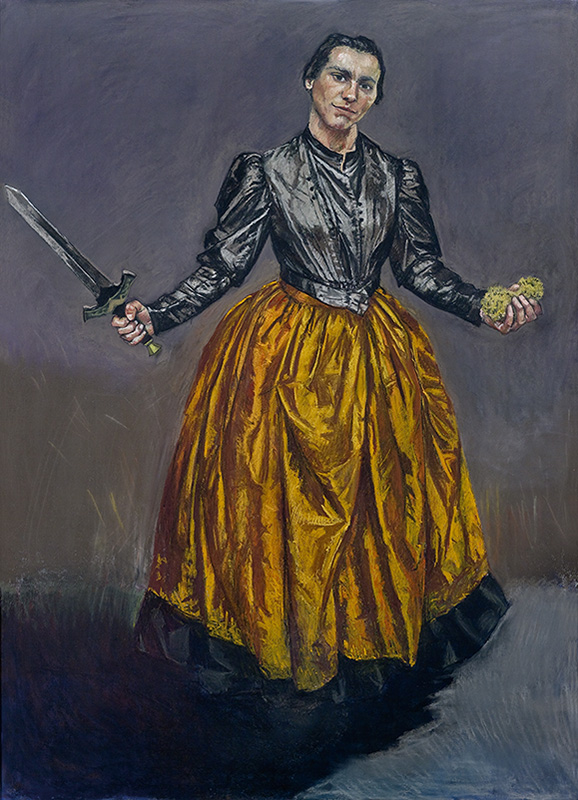
2022 summary
In 2022, the strategic cycle of activities begun in 2018 was concluded. More than anything, 2022 involved finalising and evaluating projects and publicising and disseminating the results, as well as preparing for a new period of activity by the Foundation, with a strategic reflection process for the new 2023-27 cycle.
Gulbenkian Culture
Two new works by Paula Rego in the CAM collection
 37 works by the artist Paula Rego at the Foundation
37 works by the artist Paula Rego at the Foundation
In 2022, while the artist was still alive, the Modern Art Centre (CAM) acquired Paula Rego’s paintings Angel and Turkish Bath, thereby enriching the part of the Collection dedicated to her, which now boasts 37 works, including drawings, paintings and sculptures.

Angel is one of Paula Rego’s most iconic works, that can be seen as a synthesis of all her artistic production—the artist even stated that this would be the painting she would take with her when she left. It shows the figure of a powerful woman, identifiable as an ‘Angel’, both avenging and merciful, clutching a sword and a sponge, symbols of the Passion of Christ or of his punishing force. Though not explicitly a self-portrait, it is a strong image that identifies with the interventionist sense of the artist’s work: between protection and revenge, punishment and forgiveness.
The painting is part of a series of works inspired by the Portuguese novel The Crime of Father Amaro, by Eça de Queirós, and is an example of the artist’s own fictional intervention on the story. Paula Rego establishes a non-illustrative dialogue with the novel, using all the visual resources of the pre-modern pictorial tradition to characterise her figures, exposing them in the fragility of their ethical and moral behaviours and developing a subversive reading. It is not just a condemnation of the acts, but also a cutting and painful revelation of the rituals of power, submission and complicity between sexes and classes.
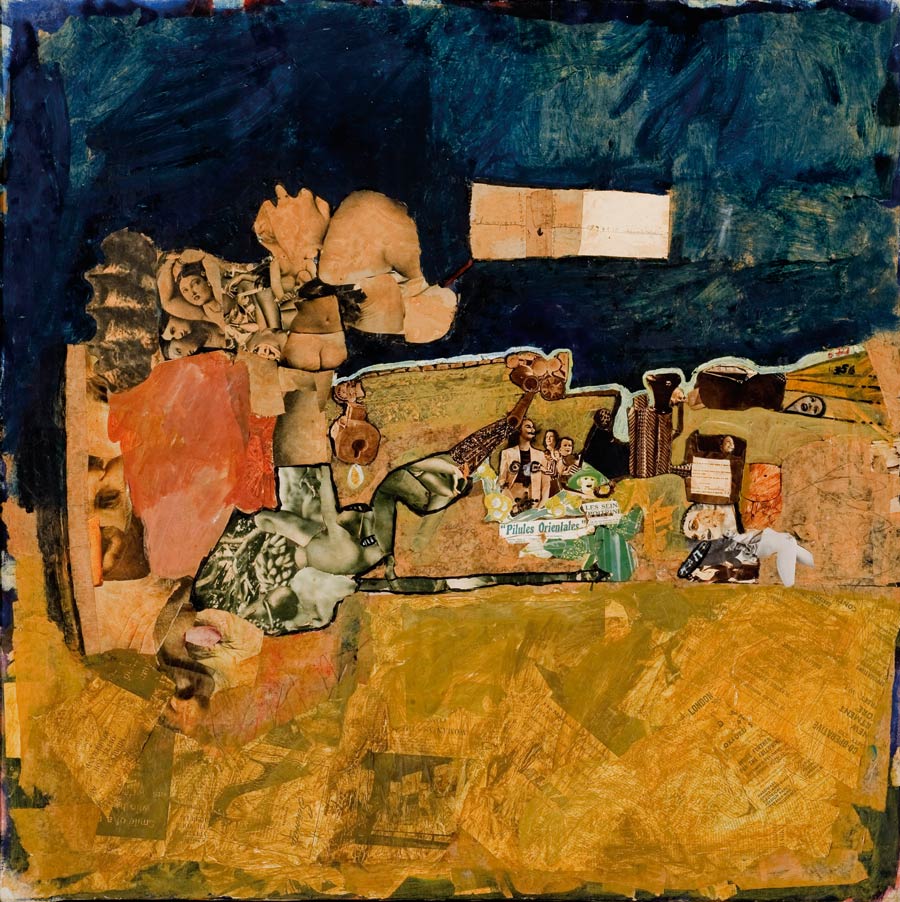
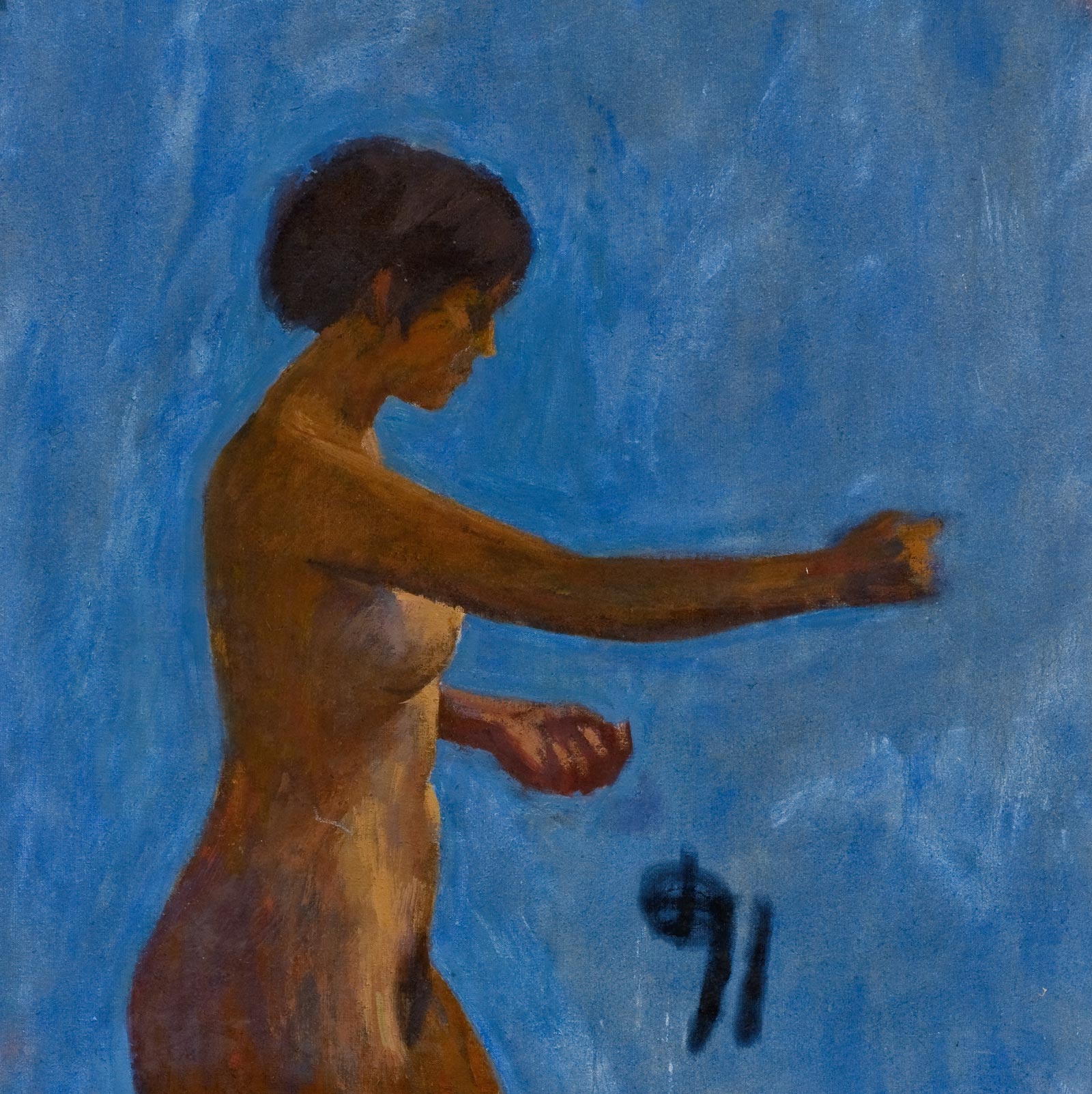
The double-sided painting Turkish Bath was done on the reverse of the artist’s portrait, painted by Paula Rego’s husband Victor Willing. The critical citation of the neoclassical painting of Ingres, present in the title itself, made in dialogue with or in response to the nude portrait, can be viewed as the first and subtle sign of a strong feminist consciousness.
Open-door day to celebrate the Gulbenkian Orchestra
 More than 5 thousand visitors
More than 5 thousand visitors
The Gulbenkian Orchestra’s 60th anniversary celebrations brought more than 5 thousand people to the Foundation, in a festive atmosphere enjoyed on the afternoon and evening of 16 October. With a packed house throughout and doors open to all, the various spaces provided the stage for the commemorative initiatives organised by the Foundation’s oldest artistic group.
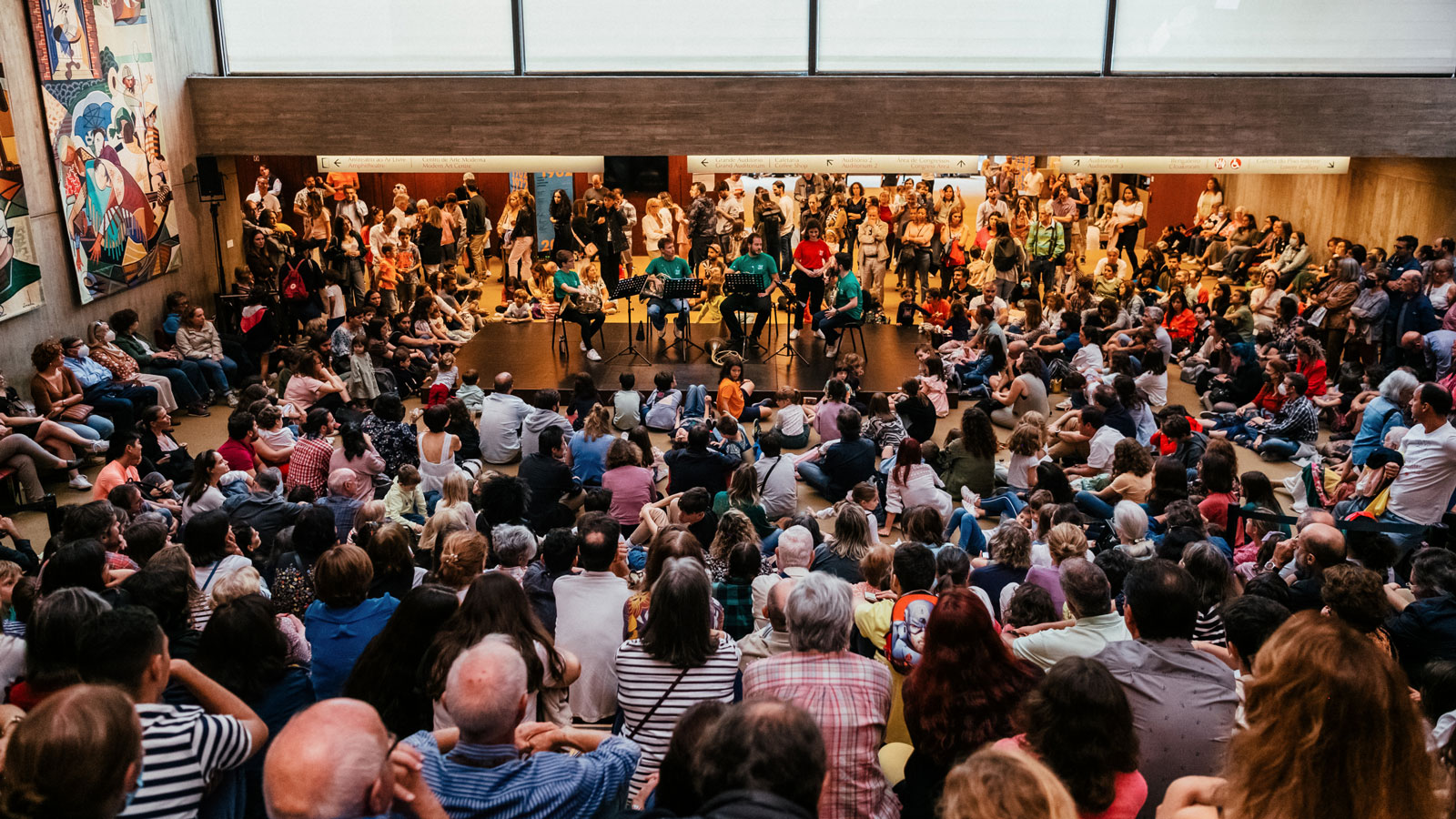
Founded in 1962, the Gulbenkian Chamber Orchestra, its name until the early 1970s, evolved steadily into its current form, making a major contribution to the enrichment of the Portuguese music scene. Over the years, the Orchestra has formed the main core of the Gulbenkian Music season, which began with the construction of the Grand Auditorium in 1969. Renowned for its public performances (both national and international) and recordings, all the activities were a sell-out.
In addition to the Gulbenkian Orchestra concert, conducted by Lorenzo Viotti and which brought the commemorations to a close in the Grand Auditorium, numerous activities were held with the direct or indirect aim of promoting the group and bringing the public even closer to its members.
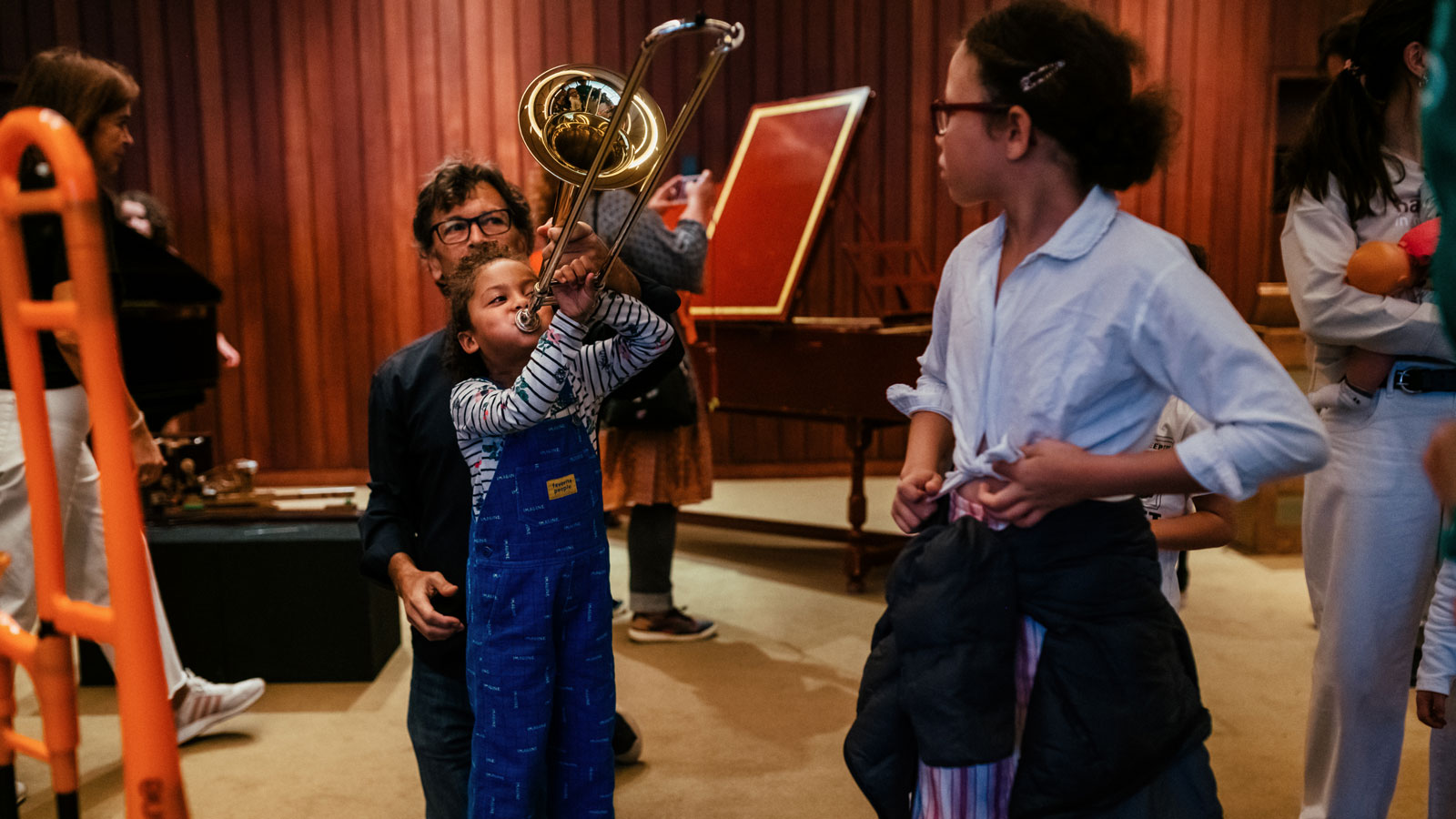
From backstage visits to an instrument-playing experience, workshops and courses for children and adults, as well as conversations with musicians, there was an emphasis on the subjects, places, instruments and codes that feed the music. And front and centre were the people who produce it – the instrumentalists –, alongside those who listen to it and make up the diverse community of audiences that the Gulbenkian Orchestra caters for.
The year of portuguese artists in France
 More than 40 Portuguese female artists
More than 40 Portuguese female artists
 More than 125 thousand visitors
More than 125 thousand visitors
In the year that Portugal and France showcased their artists in a Cross-cultural Season, the Gulbenkian Foundation strengthened its presence in a range of initiatives, from the visual arts to music. In February, the Gulbenkian Orchestra and the pianist Maria João Pires performed at the Season’s inaugural concert, at the Philarmonie de Paris. In June, the same hall hosted the Strasbourg Philharmonic Orchestra and the Gulbenkian Choir, conducted by John Nelson, alongside singers such as Joyce DiDonato, Cyrille Dubois and Christopher Maltman.
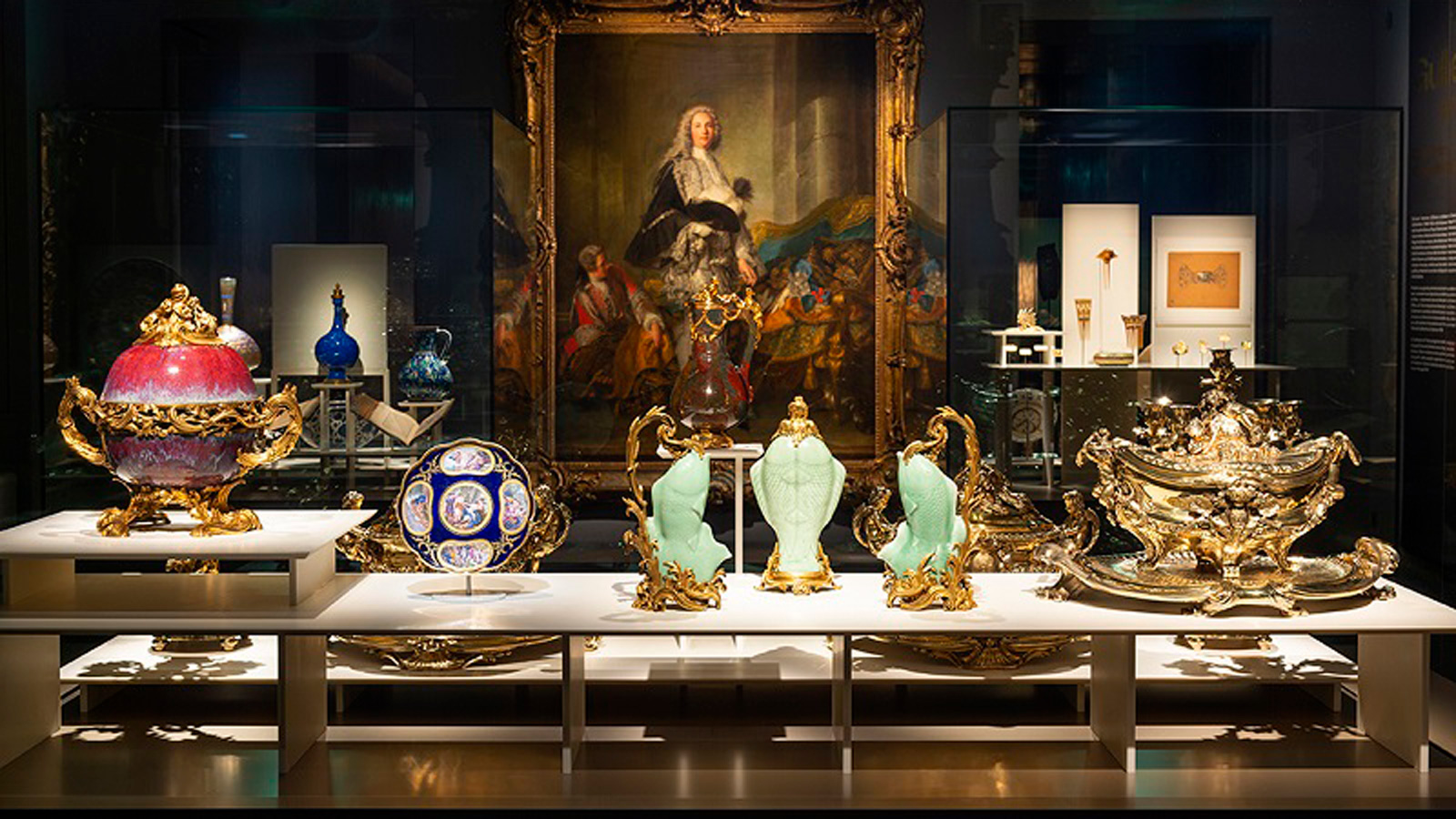
The masterpieces from the Gulbenkian Museum were exhibited at the Hôtel de la Marine, in the French capital, in an exhibition entitled Gulbenkian par lui-même, revealing lesser explored aspects of the Calouste Gulbenkian collection, in dialogue with works from the Al-Thani Collection, one of the most prestigious private collections in the world.
In Marseille, with the Foundation’s support, the Musée Cantini hosted the exhibition Vieira da Silva. The Eye of the Labyrinth, while the Centre de Création Contemporaine Olivier Debré, in Tours, presented All I want. Portuguese Women Artists from 1900 to 2020, which brought together some 200 works by 40 Portuguese artists and had been held at the Foundation’s headquarters in 2021.
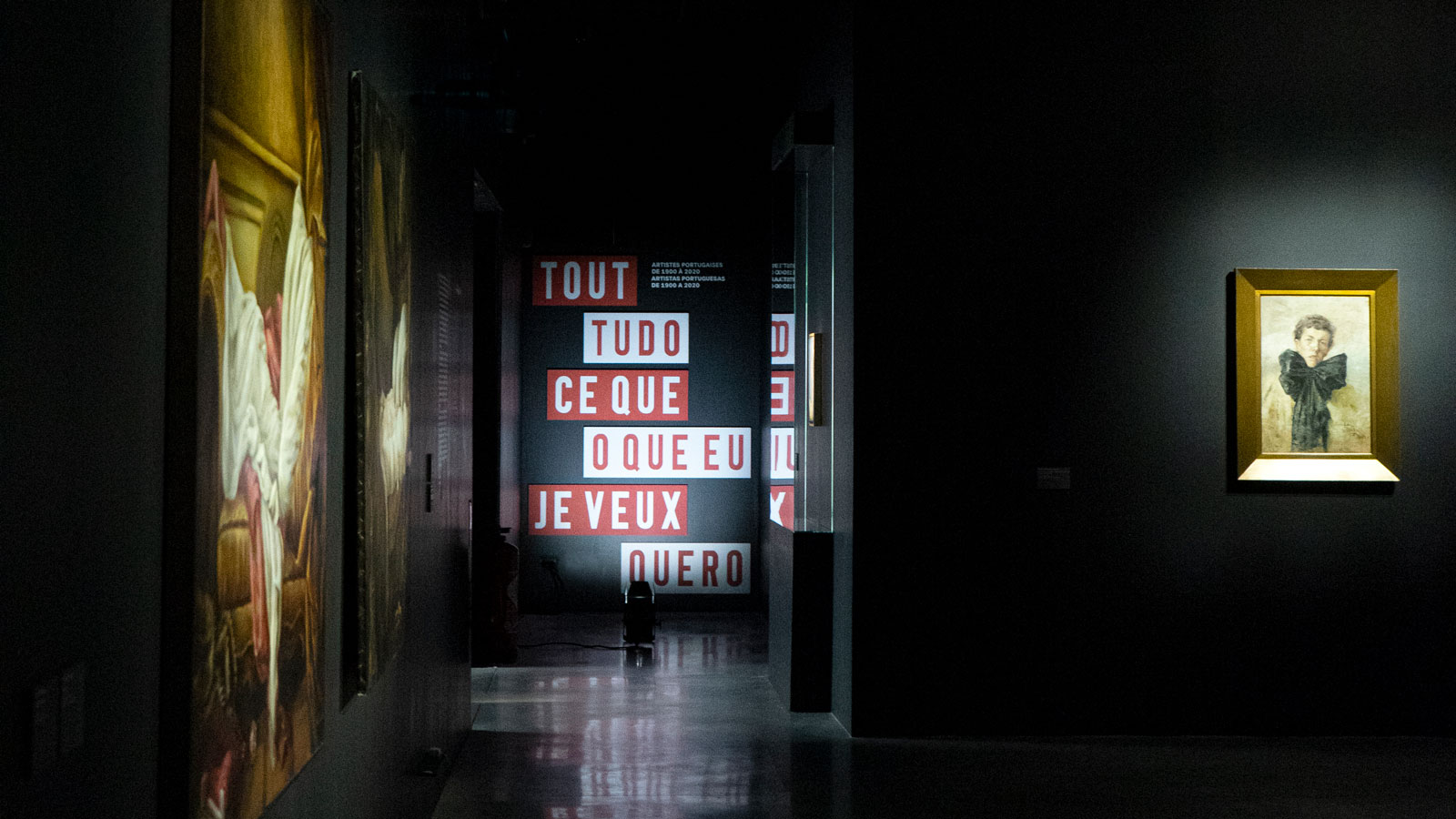
There were also various exhibitions by Portuguese artists during the year, supported by the Gulbenkian Foundation, in particular Rui Chafes, Pedro Costa and Paulo Nozolino at the Centre Pompidou, in the exhibition The Rest is Shadow, and Pedro Cabrita Reis’ work The Three Graces, exhibited at the Jardin des Tuileries.
Ana Jotta presented A comme encre at the Immanence Gallery and Une chambre en ville at the Cité internationale des arts de Paris. These exhibitions were part of the Festival d’Automne de Paris programme, which received support from the Calouste Gulbenkian Foundation’s Delegation in France. Also in Paris, the Musée d’Art Moderne exhibited work by Francisco Tropa as part of the France-Portugal Season, running until January 2023.
Survey on Portuguese Cultural Practices
 2,000 people surveyed
2,000 people surveyed
The first national survey on Portuguese cultural practices was conducted by the University of Lisbon’s Institute of Social Sciences (ICS) and resulted from fieldwork carried out during the final months of 2020 – September to December – by a team coordinated by José Machado Pais, Miguel Lobo Antunes and Pedro Magalhães.
Unprecedented in Portugal, the study provides cultural institutions with a framework for understanding their current and future audiences, with the aim of contributing to the development of innovative public policies. It gathers socially relevant and statistically representative information on those aged 15 or over living in Portugal, including the autonomous regions. The survey, which covered the pandemic period, was adapted to reflect the changes underway.
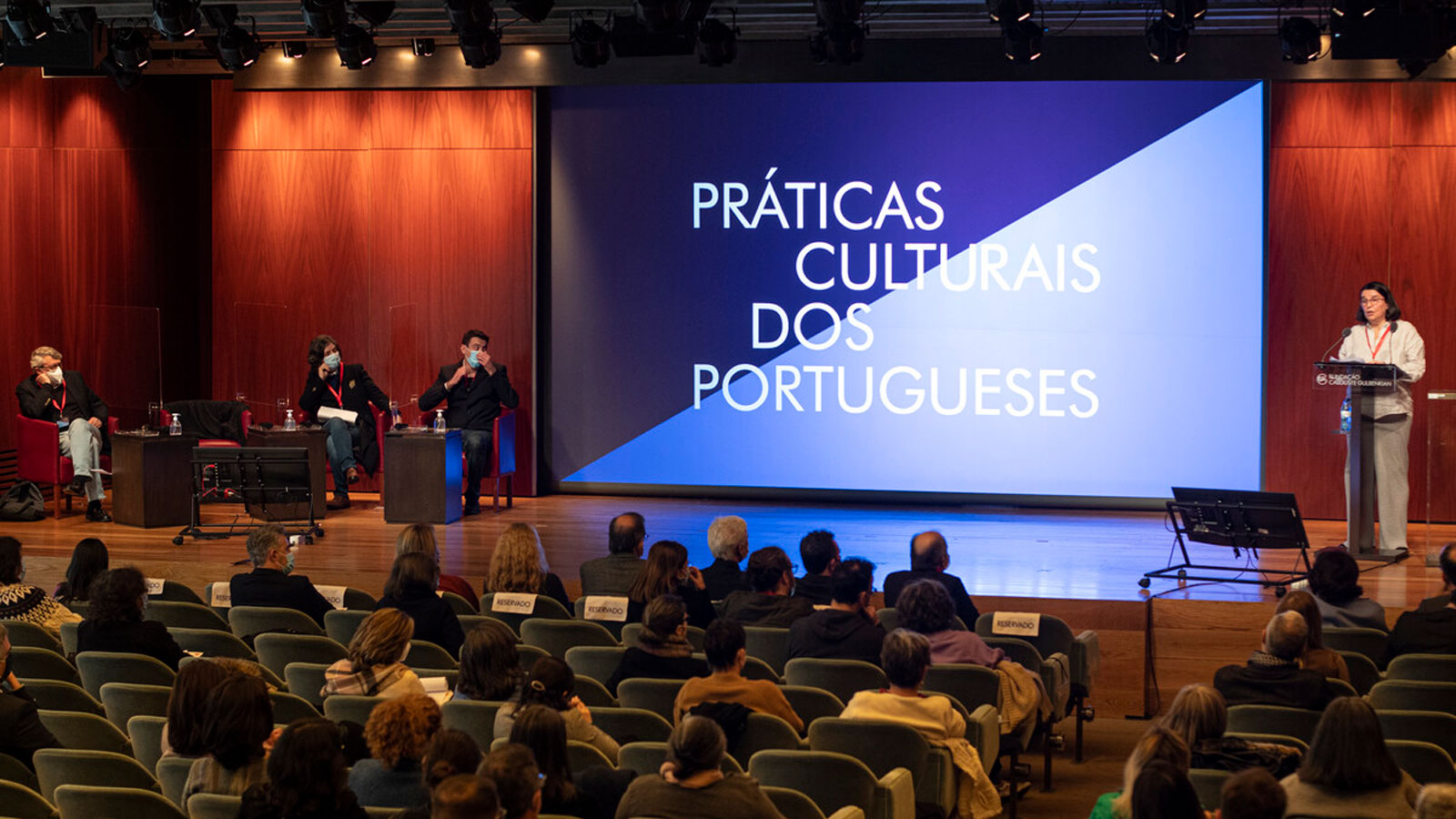
The areas surveyed encompass cultural consumption over the Internet, television and radio; reading practices in print and digital format; attendance at libraries, museums, historical monuments, archaeological sites and art galleries; attendance at cinemas, concerts and live shows, including local festivals and fairs; artistic participation and cultural capitals. Indicators of more active or committed cultural participation are also provided, including amateur artistic activities, sharing self-authored cultural content, online interaction on culture-related topics, blogging, volunteering and participation in cultural associations.
In addition to two public presentations in the Foundation’s Auditorium 2, a summary of the study can be consulted on the Foundation’s website (in portuguese).
Summer Garden
 Around 27,000 spectators
Around 27,000 spectators
Between 24 June and 10 July, the Summer Garden programme, this year markedly transdisciplinary and eclectic, presented various forms of contemporary artistic expression – music, dance, performance, poetry and film –, exploring some of the paths opened up by the Europa Oxalá exhibition, which was hosted by the Foundation between March and August 2022.

Over 3 weekends, the 3 stages installed in the Gulbenkian Garden hosted 18 concerts, 25 DJ sets and 2 poetry sessions, in a cycle curated by “Lisboa Criola – Dino D’Santiago”. At the Open Air Amphitheatre, the film exhibition “Cinemas and Independence” was held, curated by Olivier Hadouchi. The event was divided into six sessions, with nine short films and six feature films screened.
The excellent artistic programme, choice of artists, and outstanding promotional work by “Lisboa Criola” and the curator Dino D’Santiago, in partnership with the Gulbenkian Foundation, gradually transformed what was envisaged as a series of small concerts into a larger event that had a major impact and attracted a wide and diverse audience. It is estimated that some 27,000 people attended the event over the 3 weekends.
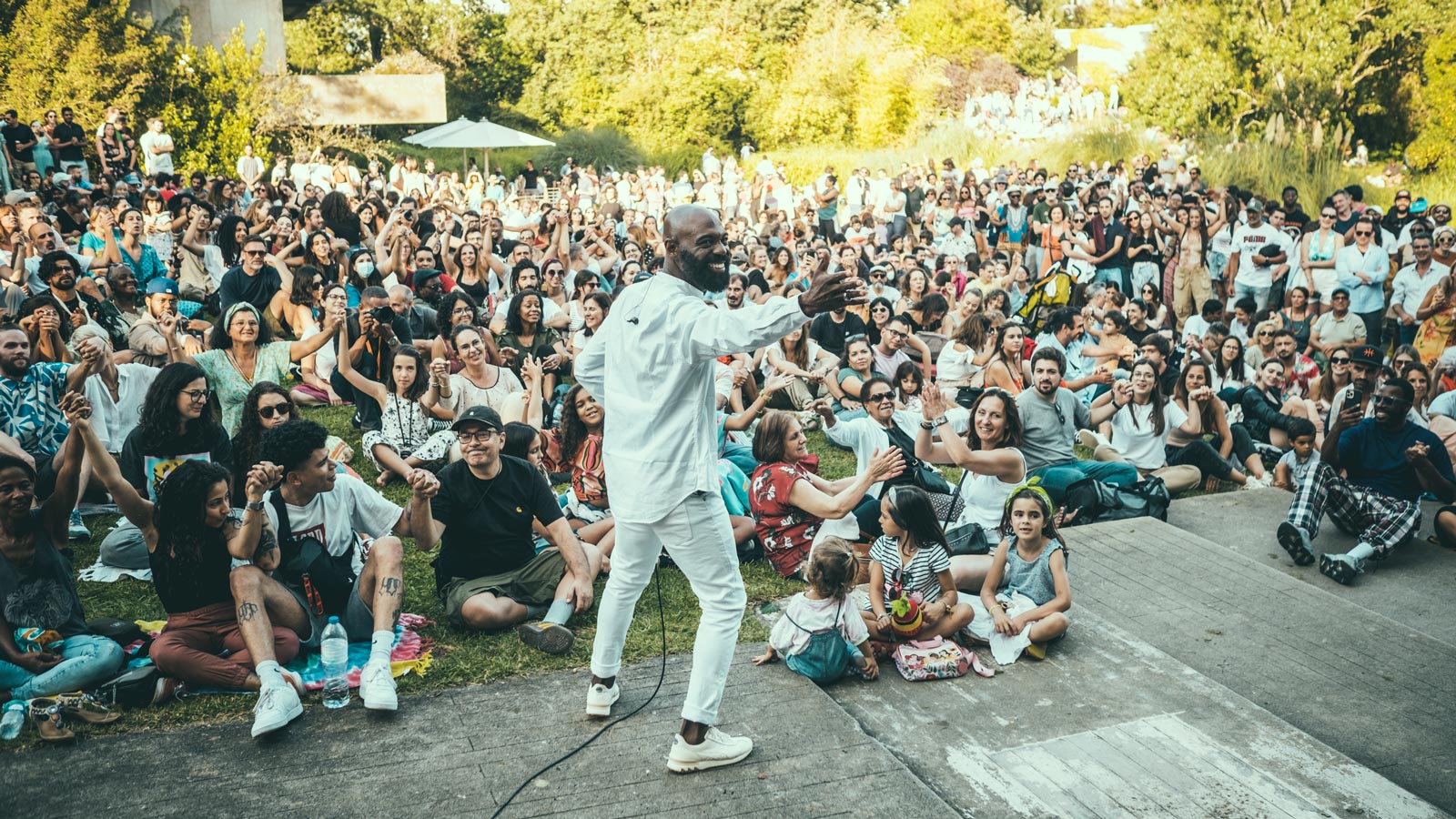
Um Corpo que Dança – Ballet Gulbenkian (1965-2005)
 Screening for 14 weeks (in cinemas)
Screening for 14 weeks (in cinemas)
The documentary Um Corpo que Dança – Ballet Gulbenkian (1965-2005), directed by Marco Martins, premiered at the Foundation in January 2022 and was screened throughout the country during the course of the year. The film was the result of a proposal made to the Foundation by Jorge Salavisa, Artistic Director of the company for twenty years, shortly before his death.
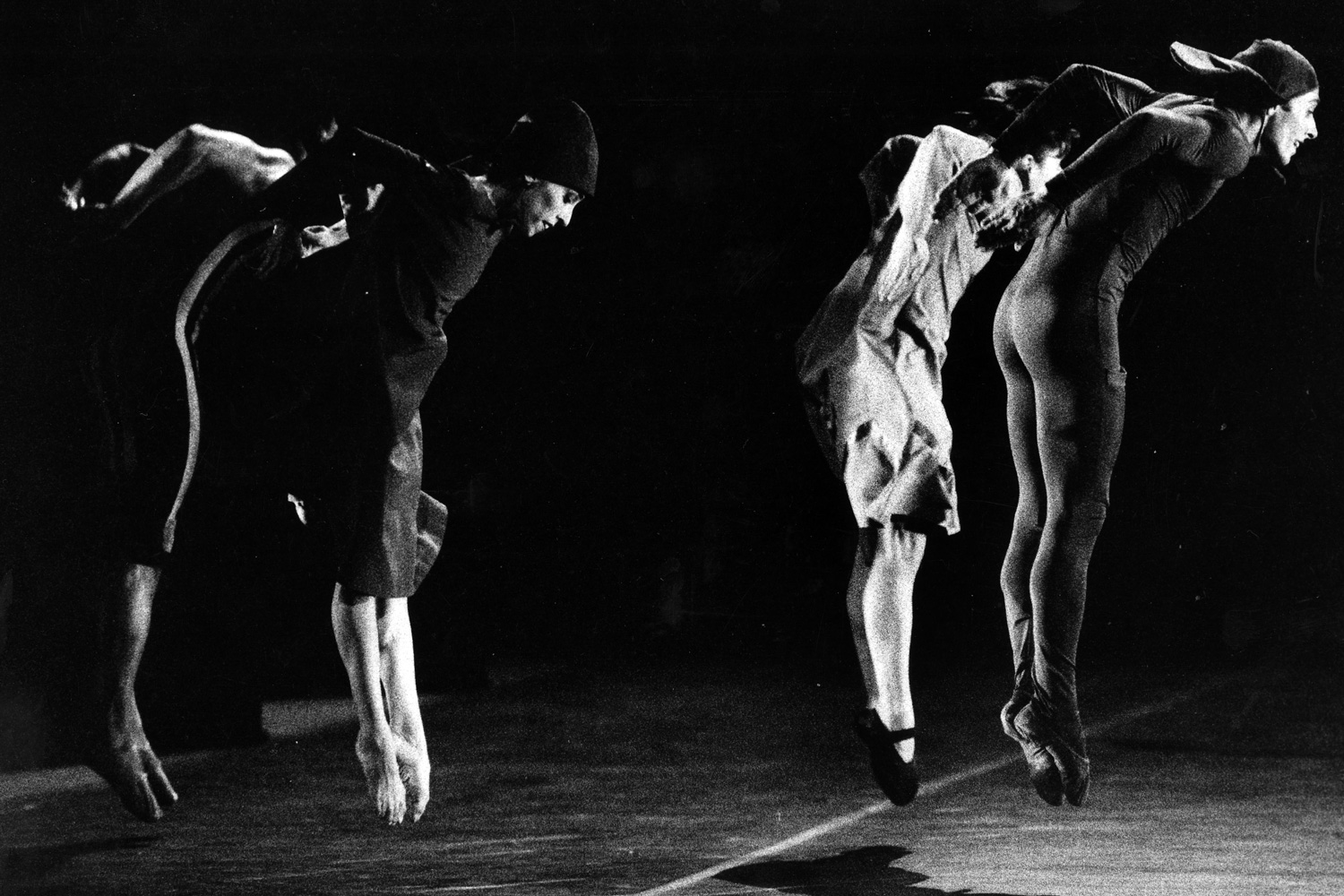
Besides showing the journey of one of the greatest Portuguese dance companies of the 20th century, the work reveals the way in which the Ballet Gulbenkian mirrored the society in which it existed, accompanying its profound changes and opening to the outside world after the Carnation Revolution, leaving an enormous legacy to Portuguese dance through its dancers and the creators who collaborated with the company in various artistic areas. The film uses previously unpublished archive footage and interviews with the creators, historians, dancers and directors of the Gulbenkian Ballet, as well as dozens of other dancers who formed part of this history.
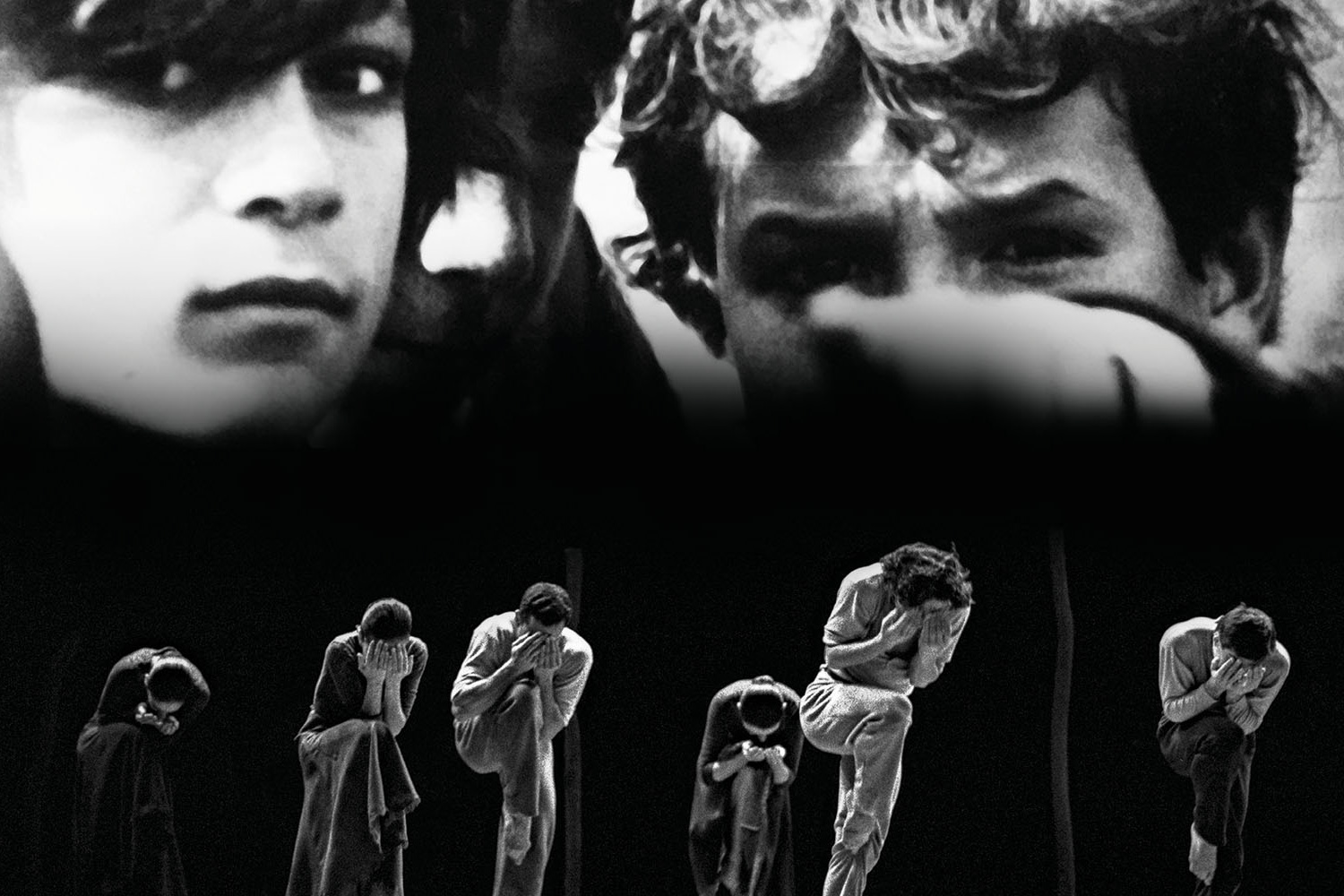
The film is scripted by Marco Martins in collaboration with Ana Bigotte Vieira, João dos Santos Martins, Luiz Antunes and Maria José Fazenda, with original music by Filipe Raposo. Besides the Gulbenkian Foundation’s support, the film also received support from RTP2, specifically for its screening.
Having premiered in cinemas on 16 June 2022, it was in theatres for a total of 14 weeks in Lisbon, Setúbal, Leiria and Porto. It was also shown in 39 special sessions, many of them in schools throughout Portugal.
Gulbenkian Sustainable Future
Foresight Portugal 2030
 9 thousand downloads of the study
9 thousand downloads of the study
Begun in November 2019, the Foresight 2030 project was a foresight exercise that cross-referenced economic and financial, demographic, social, technological, environmental, geoeconomic and geopolitical issues to develop 3 possible scenarios for Portugal’s future positioning:
The project had two distinct phases, one exploratory and the other strategic. The first focused on issues outside Portugal’s control, but which will, in the short and medium term, have a highly significant influence not only on the Portuguese economy and society, but also on the country’s contextual environment and, of course, on the evolution of the European Union. The second phase sought to identify different evolution trajectories up to 2030, corresponding to different priorities and choices by Portuguese society and authorities, taking into account various European developments.
The project was disseminated in two distinct stages. In the first phase, through the media and the publication of printed and digital versions of the 3 volumes of the study, as well as the summary/brochure and some 30 preparatory documents resulting from the first phase of the project.
The second part was dedicated to presenting and discussing the project results, promoting a decentralised debate among the main public and private entities engaged and interested in defining and implementing the multi-annual plans that define our public policies. The project was disseminated to the following entities: Caixa Geral de Depósitos, Agência para o Desenvolvimento e Coesão, Quidgest – Consultores de Gestão, SA, ERSAR – Entidade Reguladora dos Serviços de Águas e Resíduos, COTEC, the University of Porto’s Faculty of Engineering, and the University of Trás-os-Montes e Alto Douro’s Economic and Social Council.
Gulbenkian Prize for Humanity awarded to IPBES and IPCC
 116 nominations from 41 nationalities
116 nominations from 41 nationalities
In the third edition of the Gulbenkian Prize for Humanity (worth 1 million euros), the panel distinguished, ex-aequo, two intergovernmental organisations that produce scientific knowledge, alert society and help decision-makers adopt more informed measures to combat climate change and biodiversity loss.
The Intergovernmental Science-Policy Platform on Biodiversity and Ecosystem Services (IPBES) is an independent intergovernmental body established in 2012 with the aim of improving the relationship between scientific knowledge and policy makers on the issues of biodiversity, ecosystem protection, human well-being and sustainability.
The Intergovernmental Panel on Climate Change (IPCC), which won the 2007 Nobel Peace Prize (jointly with Al Gore), is the United Nations body that, since 1988, has promoted the development of scientific knowledge with a view to assessing the climate impacts of human activity, supporting governments in making decisions and implementing measures to combat climate change. The IPCC has been instrumental in monitoring the Paris Agreement climate change commitments by regularly publishing reports, the result of voluntary work by thousands of scientists from around the world.
These two entities – IPBES and IPCC – were selected from among 116 nominations from 41 nationalities, across 5 continents.
According to the panel, this award recognises science’s role at the forefront of the fight against climate change and biodiversity loss, considering that “science-based evidence has been fundamental not only for advancing numerous political and public initiatives, but also for bringing a ‘sense of urgency’ to the way in which the climate crisis is addressed from a political standpoint”.
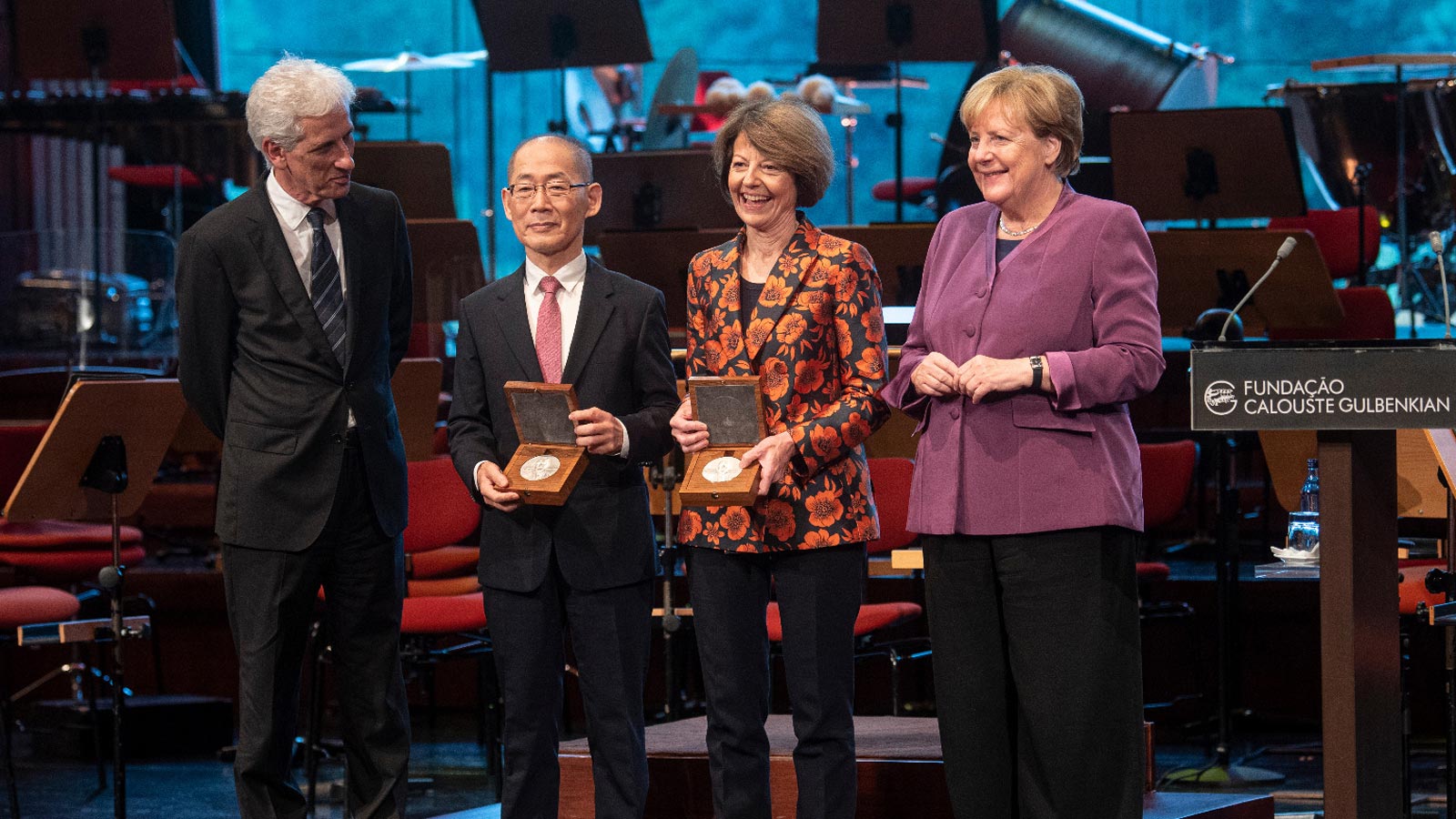
The award ceremony took place on 13 October at the Calouste Gulbenkian Foundation, with former German Chancellor Angela Merkel in attendance, agreeing to chair the Award Panel in place of Jorge Sampaio.
Gulbenkian Initiatives at the United Nations Ocean conference
The Gulbenkian Foundation was involved – as organiser or participant – in 18 of the events held as part of the 2nd United Nations Ocean Conference, co-organised by Portugal and Kenya and held in Lisbon from 27 June to 1 July. This participation reinforced the Foundation’s role in the Ocean field and gave exposure to the work it has been doing for almost a decade to promote scientific knowledge and public awareness about the importance of the ocean for human prosperity and sustainable development.
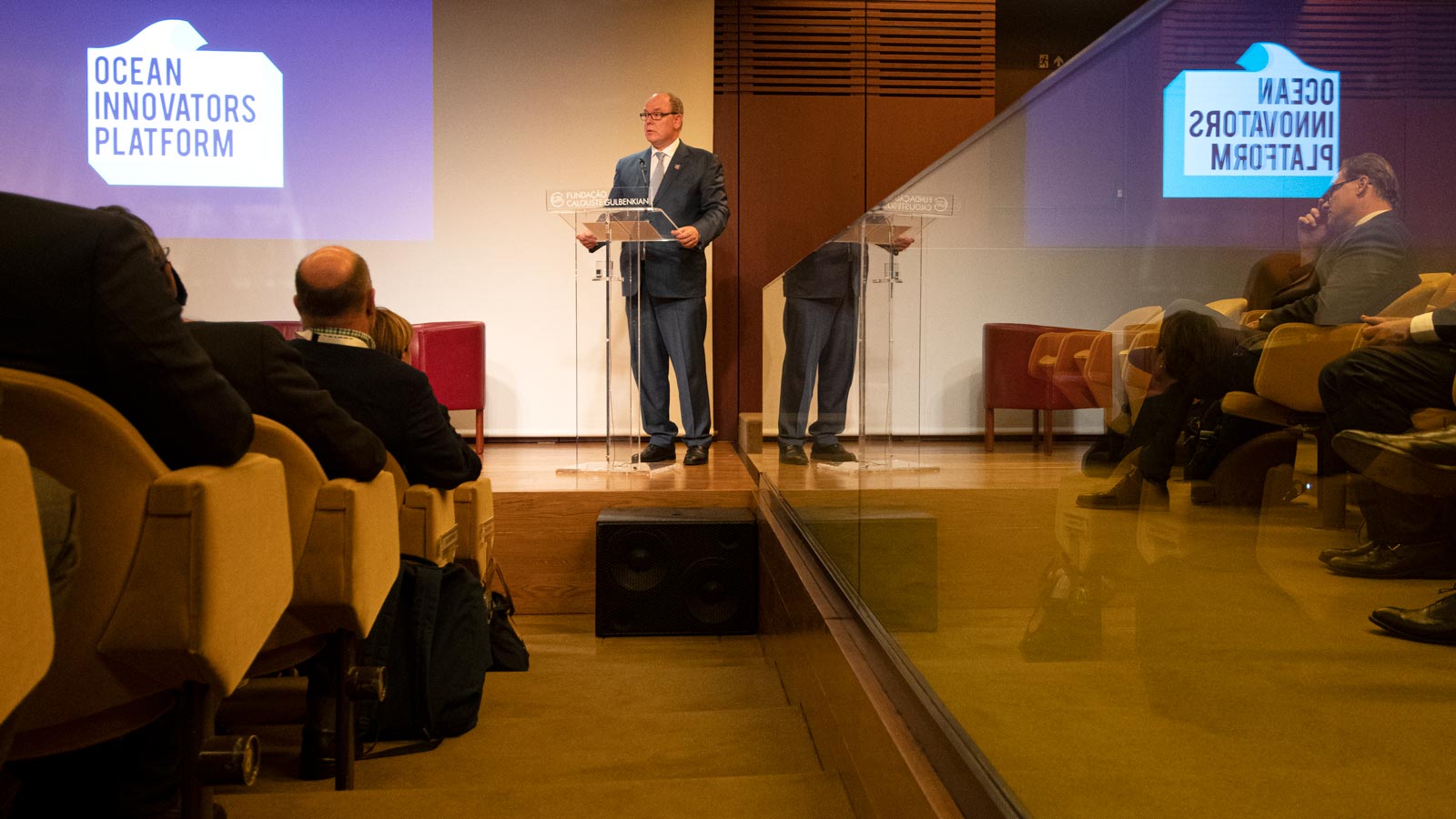
On the first day of attending the Conference, the ideation and acceleration programme experience was shared Blue Bio Value, in a session dedicated to startups in the area of blue biotechnology. This was followed by the public presentation of a new project in this area, announced on 8 June, World Ocean Day: Gulbenkian Blue Carbon.
Developed in partnership with the University of the Algarve’s Centre of Marine Sciences (CCMAR) and ANP | WWF, the initiative aims to map and profile Portuguese marine and coastal ecosystems that have an enormous potential for sequestering carbon dioxide from the atmosphere (blue carbon ecosystems) and promote investment in their conservation and restoration, through the future creation of a voluntary blue carbon market in Portugal.
Following this project and its conclusions, the Gulbenkian Foundation intends to be the first organisation to fund a blue carbon pilot project.
Planeta A – A Portuguese television success
 More than 2m viewers
More than 2m viewers
The documentary series Planeta A, co-produced by the Calouste Gulbenkian Foundation and RTP, premiered on RTP1 on 18 April 2022 and attracted almost two million viewers in its first television screening. Comprising 9 episodes of 50 minutes each, this documentary series focuses on various issues related to the planet’s sustainability, as well as highlighting solutions found in all four corners of the globe.
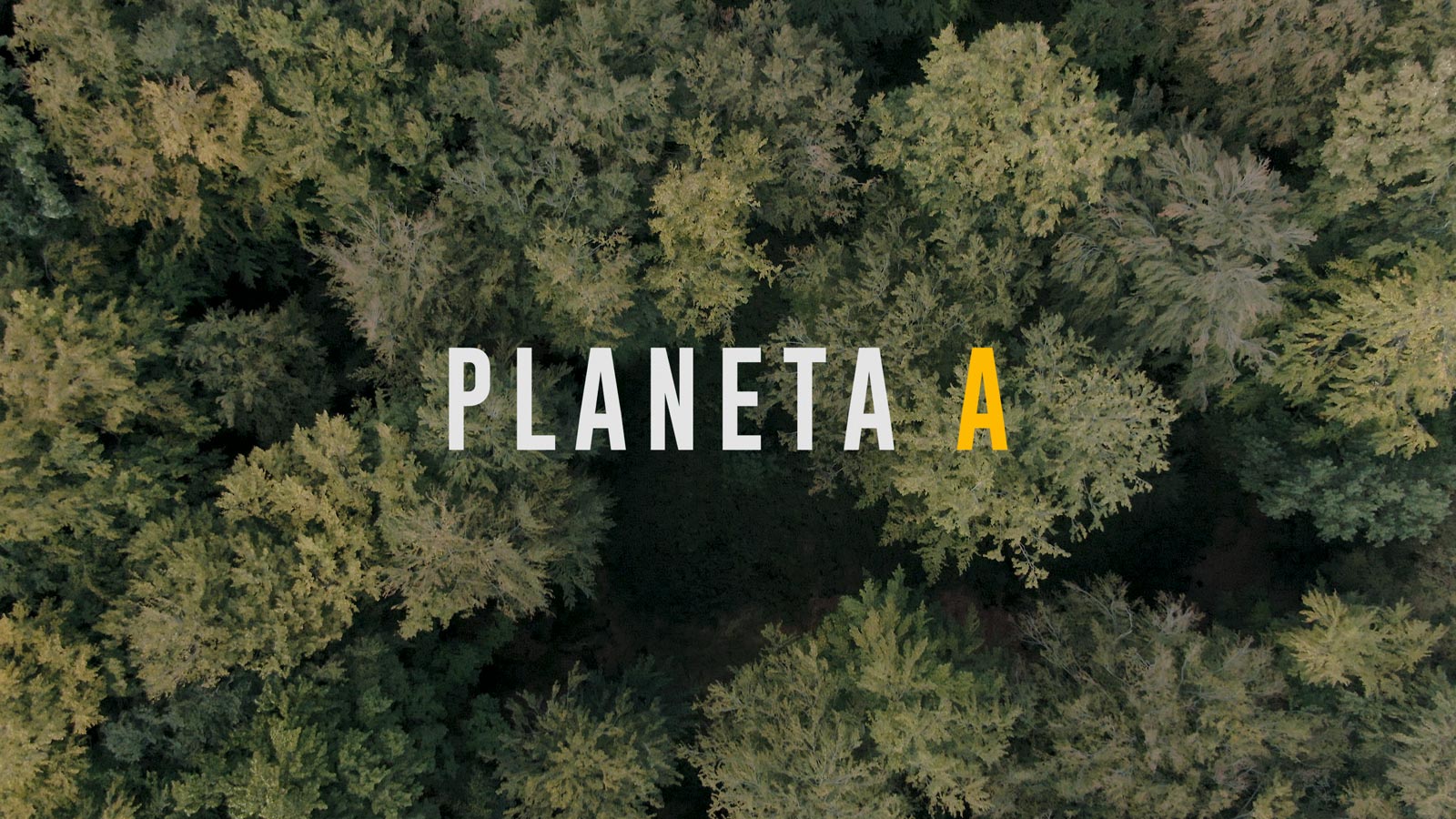
Without losing its connection with the Portuguese context, the series reveals some of the most innovative responses to issues such as pollution, global warming and poverty, as well as proposals that aim to ease the cultural, political and racial tensions emerging from all these challenges.
For over two years, actor João Reis (presenter of the series), travelled the planet in search of questions and answers, becoming a link between scientists and researchers from all over the world and the work conducted by various individuals and organisations, work that is engendering numerous changes at local level.
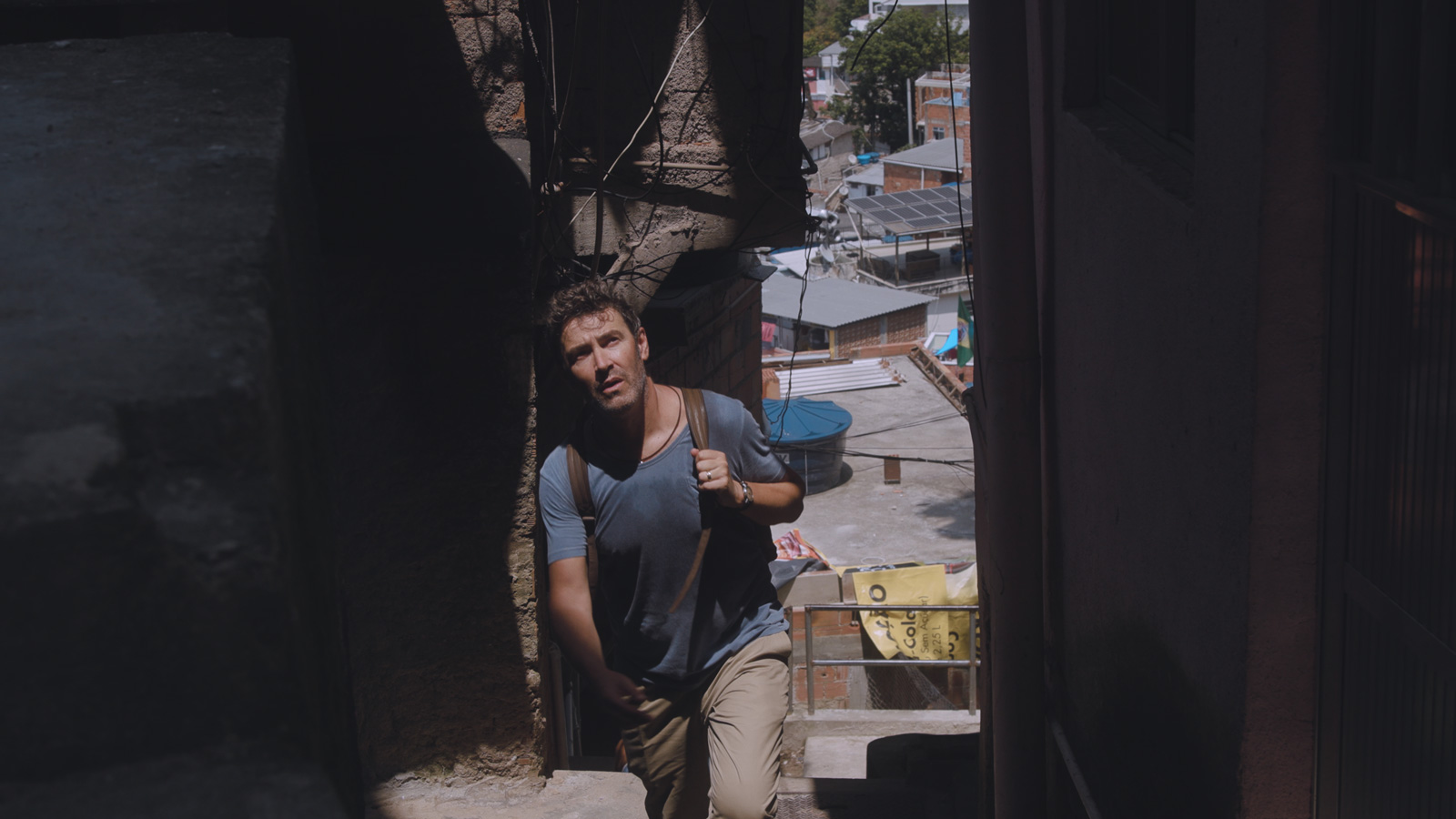
Planeta A was nominated for the Prix Europe, presented at Mipcom in Cannes, and continues to amass countless more views on the Calouste Gulbenkian Foundation website and the RTP Play platform.
Gulbenkian Intergenerational – a commitment to the future
 24.5m people reached through the media
24.5m people reached through the media
 11 studies commissioned
11 studies commissioned
 More than 2,000 participants
More than 2,000 participants
This project, begun in 2018, aimed to bring the topic of intergenerational justice into the public domain and onto the policy agenda, as well as encourage policymakers to consider intergenerational justice criteria in public policymaking.
At the beginning of the project, few if any national researchers had intergenerational justice on their work agenda. In 2022, after 11 studies promoted by the Foundation and several published policy briefs, there is an interdisciplinary network of researchers on the subject, from dozens of universities at home and abroad. The year also saw the conference “The state of the future: a commitment between generations”, curated by Pedro Pita Barros, which brought together political decision-makers, academia and civil society at the Foundation to discuss a new social contract that guarantees a fairer future for all generations.
As for placing the topic on the political agenda, one of the key points was developing a Methodology for Assessing the Intergenerational Impact of Public Policies, which was tested and applied to current cases in Portugal and reviewed by experts from the Bank of Portugal, the Portuguese Public Finance Council, the Portuguese Legislative Impact Assessment Unit (UTAIL), the Portuguese Technical Unit for Budgetary Support (UTAO) and the Portuguese Court of Auditors, who gave extremely positive feedback on their participation in the project.

The scope of the methodology went beyond the institutions involved in the project, as various organisations were trained in the use of this tool, allowing them to experiment with this evaluation method based on specific policy exercises. Among the various training sessions held, the highlight was in May 2022, involving the team from the Presidential Civil Affairs Office, at the invitation of the President himself, who recorded a message that was relayed at the conference “The state of the future: a commitment between generations”.
Internationally, the Foundation was invited by the Organisation for Economic Cooperation and Development (OECD) to present the Gulbenkian Intergenerational initiative at the organisation’s headquarters in Paris, focusing on the Methodology. This presentation, in June 2022, was the highlight of the OECD’s cycle of seminars on Youth Empowerment and Intergenerational Justice, and the outcome of this debate will support discussions about implementing the forthcoming OECD Recommendation on Creating Better Opportunities for Young People.
In order to ensure that the intergenerational justice “agenda” is adopted by academic and civil society institutions interested in continuing and scaling up the initiatives already developed, support is being provided to the Economics for Policy Knowledge Center at NOVA SBE, which has created a team to improve and regularly use the Methodology for Assessing the Intergenerational Impact of Public Policies, publishing the assessments made, and being able to provide training on it to interested organisations.
The Institute of Public Policy – Lisbon (IPP) was also supported in creating and publicising an aggregated intergenerational justice index, with indicators in the areas of housing, the labour market, the environment, public accounts, health, and poverty/inequality, allowing for further research and debate on crucial issues for assessing inequalities between generations.
Emergency support for Ukraine
 More than €1m euros in aid
More than €1m euros in aid
In order to respond to the humanitarian situation caused by the war in Ukraine, the Foundation gave one million euros in aid to humanitarian organisations helping refugees in the border countries most under pressure, as well as Ukrainian associations involved in efforts to host people in Portugal.
The international component of this support was established following contact with the networks in which the Calouste Gulbenkian Foundation is integrated. Direct support was provided to Polish Humanitarian Action and the Jesuit Refugee Service, specifically in countries bordering Ukraine, such as Poland, Hungary, Moldavia and Romania, where there have been the greatest efforts to aid refugees.
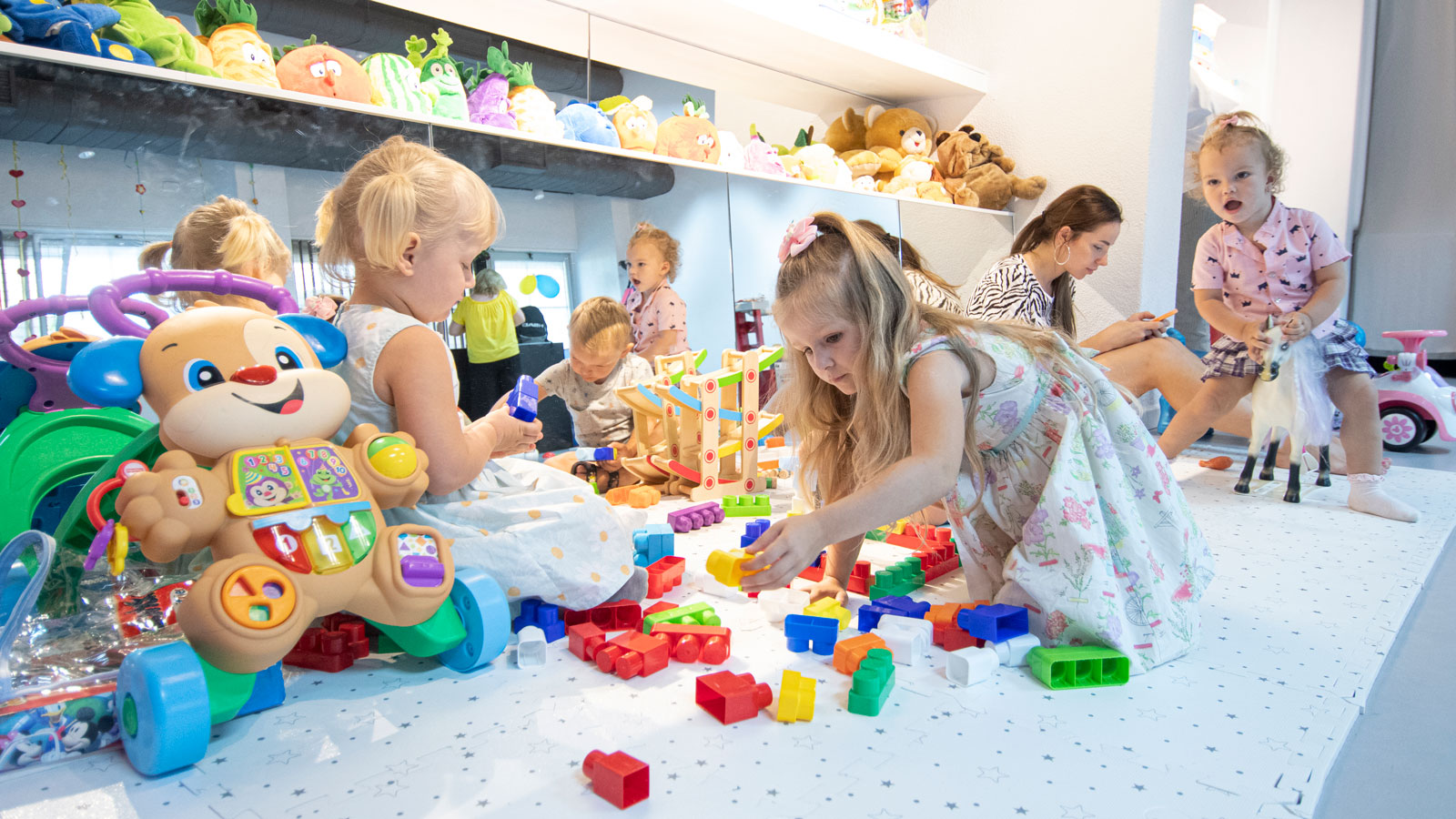
Furthermore, a pooled fund was established through the European Programme for Integration and Migration (EPIM), to which the Foundation made a contribution, alongside other foundations, including the Open Society Foundations, the Robert Bosch Foundation, the Fondation de France, Adessium, Compagnia di San Paolo, the Kahane Foundation and the Charles Stewart Mott Foundation. This fund has been supporting civil society organisations that assist people who have left Ukraine, and of a total of €4.8m provided, €3.1m has already been allocated to 15 initiatives, a sum that will be maintained throughout 2023.
At national level, in recognition of NGOs’ work in bringing more than 54,000 Ukrainian citizens to Portugal, support was granted to 5 Ukrainian associations, reinforcing their structure and operations. Involved from the outset in providing humanitarian support and receiving refugees, these associations received up to €50,000, in 2 instalments, which enabled specific needs to be met, such as bolstering staff, buying basic necessities (school and computer equipment) and purchasing books in Ukrainian.
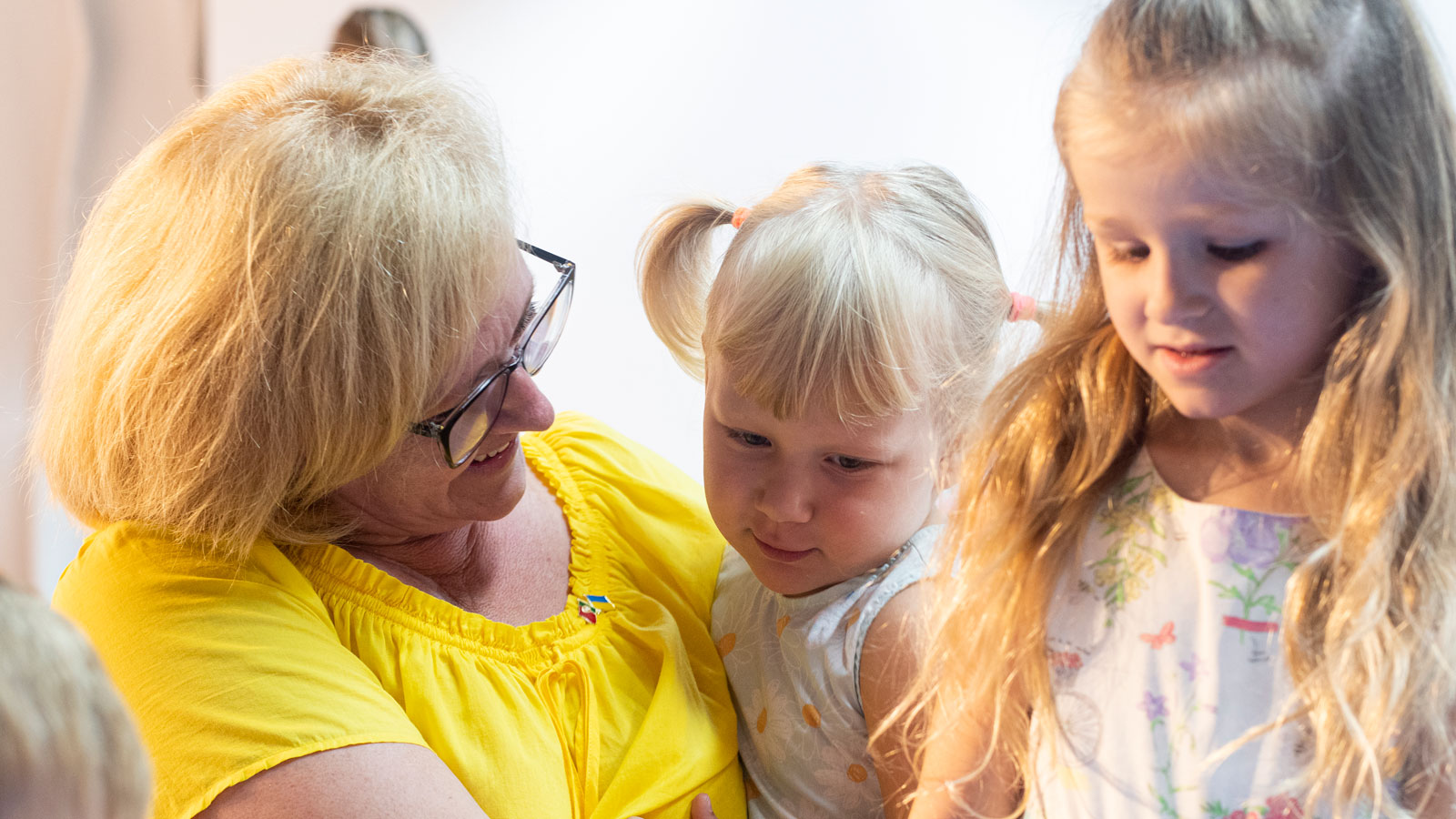
Further support involved organising Portuguese language classes and providing legal and psychological support, while yet more funds were provided for cultural visits, holiday camps and artistic activities, especially once people had become more integrated, bearing in mind that 1/3 of Ukrainian refugees in Portugal are children. In April 2022, the Foundation launched a nationwide call to create what were named ABC Groups (from the Portuguese ‘Aprender, Brincar, Crescer’ – Learn, Play, Grow), with the aim of funding projects that promote education and care for children aged 0 to 6 years, and their families.
Between April and September 2022, this emergency support was focused on private non-profit organisations and reached more than 200 children and 100 carers. The projects took place in the municipalities of Águeda, Braga, Cascais, Coimbra, Faro, Leiria, Lisbon, Mafra and Quarteira. In addition, a collaboration protocol was established with the Associação Caminhos da Infância and Lisbon City Council for the creation of an ABC group at the Calouste Gulbenkian Foundation headquarters.
Support for social intervention projects
 €1.8m in support
€1.8m in support
This year the Cidadãos Ativ@s Programme, managed by the Gulbenkian Foundation and the Fundação Bissaya Barreto, provided 1.8 million euros to various initiatives by Portuguese non-governmental organisations. The Programme is part of the EEA Grants, aiming to strengthen civil society organisations in Portugal with funds from Iceland, Liechtenstein and Norway.
The main objective of the numerous projects supported is promoting democratic participation, active citizenship, human rights and the empowerment of vulnerable groups.
Throughout the year, the Programme carried out a number of actions that can be translated into numbers: 315 NGO professionals received training that will help make their organisations more sustainable; in the most vulnerable groups, 190 people were reached through economic empowerment initiatives; 38 initiatives were implemented to promote access to information on public and/or private policies; 17 awareness-raising campaigns on human rights were also conducted.
The Programme began in 2018 and will end in 2024, having a total budget of 11 million euros.
Gulbenkian Science
The return of Stop Hospital Infection
 12 new Hospital Centres
12 new Hospital Centres
In Portugal, 60 thousand citizens acquire at least 1 healthcare associated infection every year. More than 1 thousand deaths are directly attributable to these infections, while they make hospitalisations 5 times longer, with an estimated additional cost of between 300 and 400 million euros. Figures in the rest of Europe show that more than 4 million people are affected annually, causing 37 thousand deaths and a €7 billion burden on healthcare systems, resulting in one of the greatest threats to sustainable global health.
If nothing is done, healthcare associated infections will be the leading cause of death in the second half of the 21st century, largely due to bacteria becoming resistant to antibiotics. Indeed, we are heading towards a scenario comparable to life before the discovery of antibiotics.

Between 2015 and 2018, the Gulbenkian STOP Hospital Infection Challenge, created following the recommendations of the Report “A Future for Health”, produced by the Gulbenkian Foundation*, committed to reducing the incidence of infections by at least 50%. The results show that the objectives were exceeded in 4 areas – ventilator-associated pneumonia, catheterisation, knee and hip replacements, and central venous catheters – in 19 Portuguese National Health Service hospitals. In view of these results, the Portuguese Ministry of Health incorporated the intervention model into its policies for preventing and controlling infections and antimicrobial resistance (Order No. 2757/2017, of 3 April).
In 2022, the project was extended nationally with the selection, by tender, of 12 new Hospital Centres, encompassing about half of the public hospital units in the country. This expansion was based on a financial contract between the Portuguese State and the Health Units (Order No. 10901/2022, of 8 September), and also on the formation of a network of mentors – health professionals who have developed skills in implementation sciences and who will support the new participating units.
* In partnership with the Portuguese Ministry of Health, the Portuguese National School of Public Health and the Institute for Healthcare Improvement.
Boosting health sciences research in the PALOP countries
 6 research institutions involved
6 research institutions involved
 10 researchers from the PALOP countries supported
10 researchers from the PALOP countries supported
 2 new laboratories in Cape Verde
2 new laboratories in Cape Verde
In 2022, seven research projects were initiated in the area of health, supported by the Calouste Gulbenkian Foundation, three of which were in partnership with the La Caixa Foundation. With a budget of more than 1 million euros, the projects involve more than 10 researchers from the PALOP countries (Angola, Cape Verde, Guinea-Bissau and Mozambique), and are focused on the areas of the microbiome and respiratory infections, cancer, COVID-19, HIV and malaria.
In addition to providing more knowledge about these diseases and their interactions, the projects aim to support the scientific careers of researchers and strengthen capacity at the 6 research institutions involved, namely: the National Institute of Health in Mozambique; the University of Cape Verde in partnership with the Faculty of Medicine at Eduardo Mondlane University in Mozambique; Dr. Agostinho Neto University Hospital in Cape Verde; the Angolan Health Research Centre/National Institute of Health Research; and the “Bandim Health project” in Guinea-Bissau.
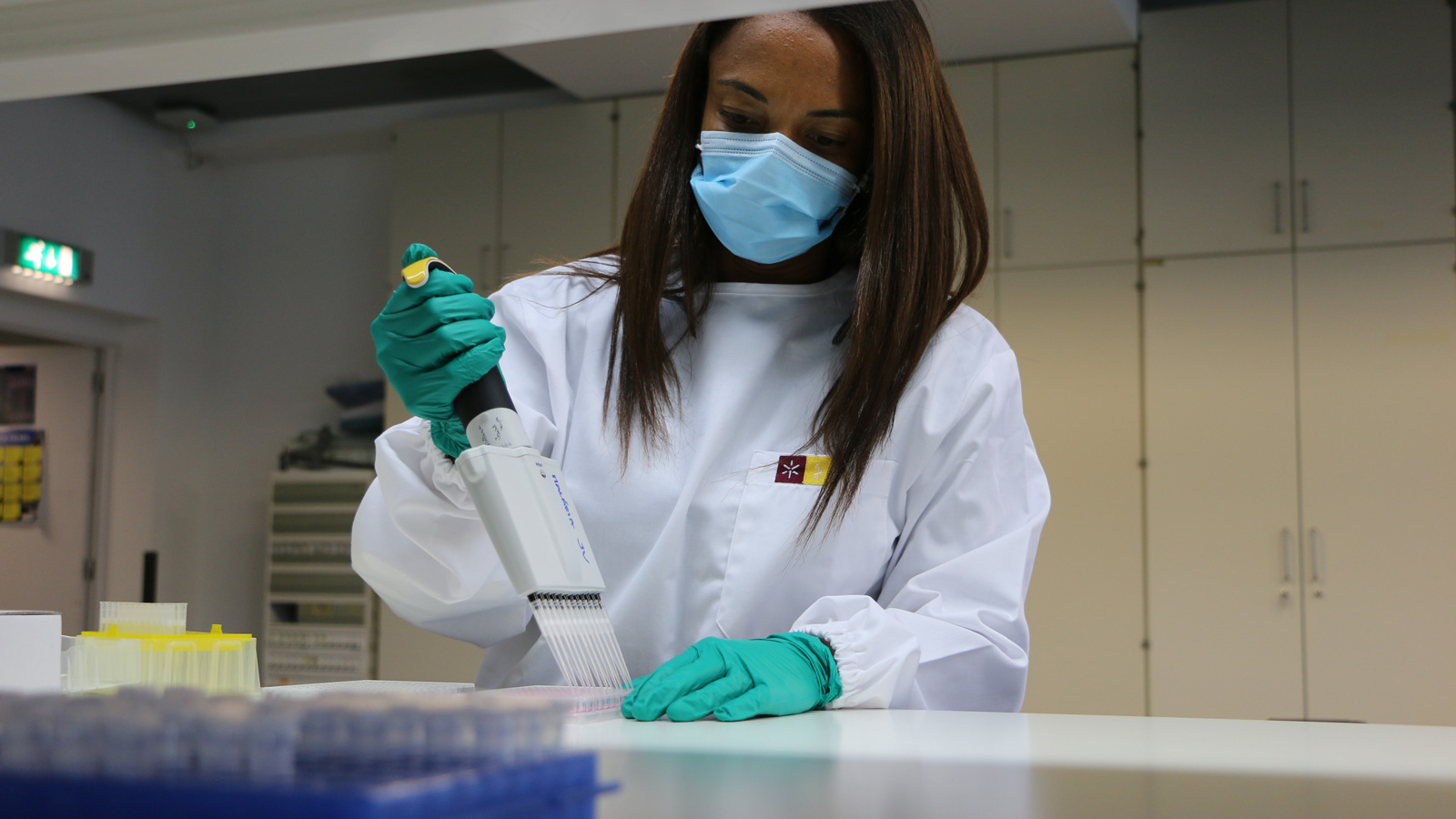
In this first year of implementation, the researchers largely dedicated themselves to preparing the technical and logistical conditions for conducting research, setting up and training the teams, preparing the technical and scientific protocols and obtaining approval from ethics committees.
Some of the projects have begun collecting samples, such as the one involving 690 children from 3 primary schools in urban, peri-urban and rural areas of Maputo, in a study conducted by the country’s National Institute of Health that seeks to understand the exposure of these children to SARS-Cov-2. In Angola, some 700 adults have voluntarily participated in the study aimed at assessing the HIV transmission chain, through the analysis of risk factors and genetic determinants of the host; another study brings together 157 patients, aged between 18 and 65, monitored in pneumology consultations at the Luanda Military Hospital, with the aim of examining the link between helminths and allergic respiratory diseases.
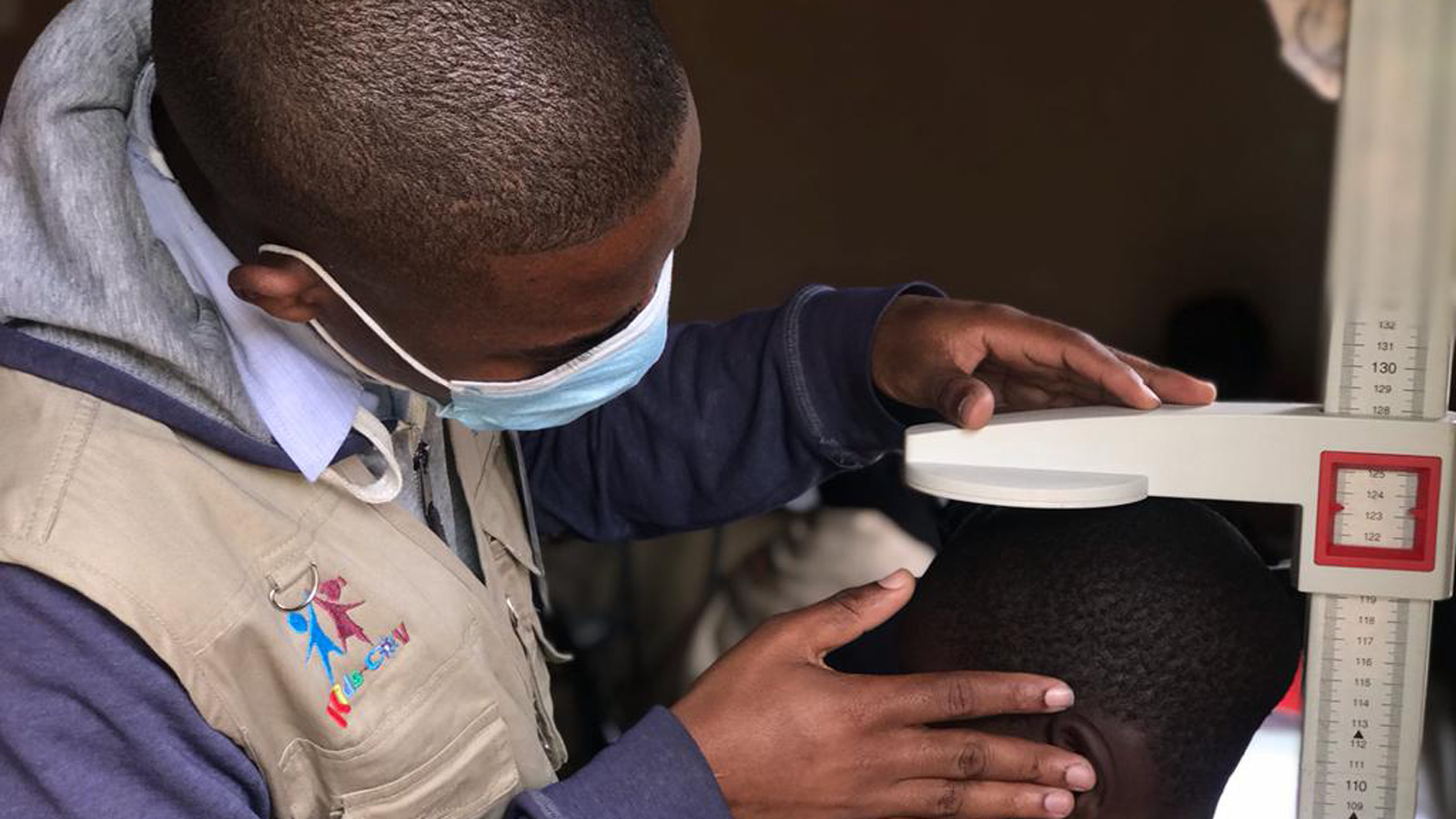
The year also saw the creation and inauguration of a molecular biology laboratory at Agostinho Neto University Hospital in Cape Verde and a histopathology diagnostic laboratory at the University of Cape Verde, which will have a major impact on research and treatment with regard to breast and prostate cancer in the country. The University of Cape Verde also hosted an international conference on prostate cancer, attended by more than 200 people.
In addition, the Gulbenkian Foundation provided support for 6 online courses on cross-cutting health sciences research skills, which were attended by around 150 researchers, as well as for the public presentation of the MAPIS study results, which provided an overview of the health sciences research carried out in the PALOP countries and its funding. The presentation of these results also involved discussions with a number of national and international stakeholders on the future challenges for health sciences research in these countries.
IGC joins LS4FUTURE associate laboratory
 €8.5m of funding in total
€8.5m of funding in total
Unique in Portugal, LS4FUTURE (LS4F) brings together the Instituto Gulbenkian de Ciência (IGC), the NOVA Institute of Chemical and Biological Technology (ITQB), the Institute for Experimental Biology and Technology (iBET), NOVA Medical School (NMS – Universidade Nova de Lisbon) and the Francisco Gentil Portuguese Oncology Institute (IPOLFG) in Lisbon. There are also four Research Units associated with these institutes, namely MOSTMICRO-ITQB, GREEN-IT, IGC and iNOVA4Health.
LS4F Associate Laboratory status was granted by the Foundation for Science and Technology (FCT) in 2021, for a period of 10 years, with total funding of €8.5m over 5 years, including €2.3m for the IGC, which has been part of LS4F since February 2022.
Based on the “One Health” concept, LS4F focuses on human and environmental health, with a view to achieving a sustainable future for both the human species and the planet. Bringing together diverse and complementary knowledge, it addresses problems in an interdisciplinary and comprehensive way, offering effective solutions to current and emerging social challenges.
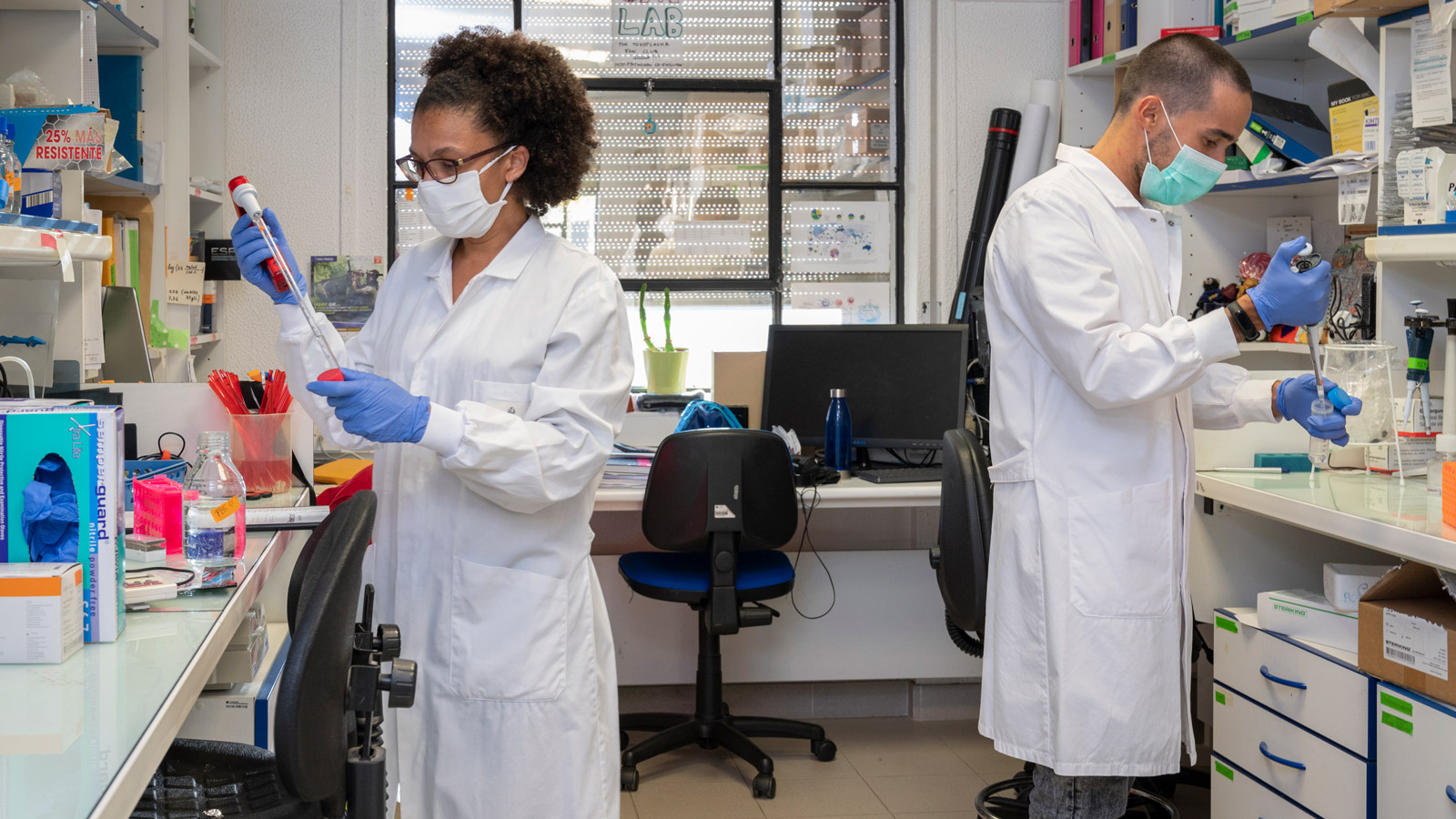
In 2022, LS4F’s activity firstly involved strategic planning and the definition of work projects, with an emphasis on planning with the different coordinators of the subject areas, which encompass research projects aimed at: i) preventing diseases and understanding their mechanisms, ii) discovering and developing advanced therapies, iii) ensuring food safety and protection and increasing agricultural productivity, iv) designing solutions for sustainable ecosystems, based on knowledge and biotechnology. Secondly, and as a result of the planning work, the LS4F Coordination team was recruited, this team being responsible for implementing the action plan in the areas of careers, internationalisation, translation and communication.
To ensure close coordination between all partners, in October 2022, the “Research Management Staff Meeting” was launched to promote interaction between the LS4F Coordination team and members of the Scientific Project Management offices at the various institutes. The first meeting took place on 26 October and included 25 members from the various partner institutes. LS4F intends to mark “Science and Technology Week” with an online meeting to help bring science and society closer together, with the aim of sharing scientific knowledge to foster opinion forming based on scientific data.
In February 2023, the first LS4F General Meeting is planned, bringing together all the researchers and students, while the following month will see the first Principal Researchers retreat, the aim being to promote collaboration and the development of interaction networks between members of the LS4F community.
Gulbenkian 2023
Centenary of Madalena de Azeredo Perdigão’s birth
Madalena de Azeredo Perdigão (1923-1989) was a key figure in shaping the Foundation’s work in the area of the Performing Arts, from its inception until the modern day. Director, successively, of the Music Department and of ACARTE (the Foundation’s department for events, artistic creation and education through art), her work, both through the Foundation’s direct impact on the Portuguese artistic fabric and through her important roles in governmental and civil society organisations, made her an essential reference point for understanding Portuguese artistic life in the second half of the 20th century, as well as for engaging in a contemporary reflection on the role of the Arts in today’s challenges of building a democratic society and ensuring sustainable development.

In 2023, the centenary of her birth, the Foundation will conduct a number of initiatives in her honour, with the exhibition “Madalena de Azeredo Perdigão (1923-1989): we will take risks”, from 28 April to 20 July, curated by Rui Vieira Nery; a colloquium, also curated by Rui Vieira Nery, in April/May; a reprise by the Gulbenkian Orchestra and the Casa da Música Orchestra, on 28 April, of the piece La Transfiguration de Notre Seigneur Jésus Christ by Olivier Messiaen; and a Meeting/ Debate, in June/ July, on new challenges for the Arts in a changing society, curated by Benjamin Weil.
Histories of a Collection of Modern and Contemporary Art
 Approximately 12 thousand works in the CAM Collection
Approximately 12 thousand works in the CAM Collection
Between May and September, the Histories of a Collection exhibition will showcase the journey of the Modern Art Centre (CAM), celebrating its 40th year, and many other stories behind some of the most important works acquired by the Gulbenkian Foundation since the late 1950s, as well as some lesser known or previously unseen works from the CAM Collection.
The exhibition will present a series of works involving different periods, places and artistic dynamics, exploring new narratives and interpretations. Key moments in the CAM Collection’s formation will be highlighted, accompanied by the publication of an extensive catalogue, with unpublished essays by the curators, as well as a complementary programme to familiarise the public with the stories the CAM Collection works have to tell.
The first modern art works were purchased in the late 1950s for temporary travelling exhibitions organised by the Foundation. It was also the Foundation’s practice to purchase works by its grantee artists, who began receiving such support as early as 1956. The Modern Art Centre Collection thus began to take shape, now boasting around twelve thousand works.
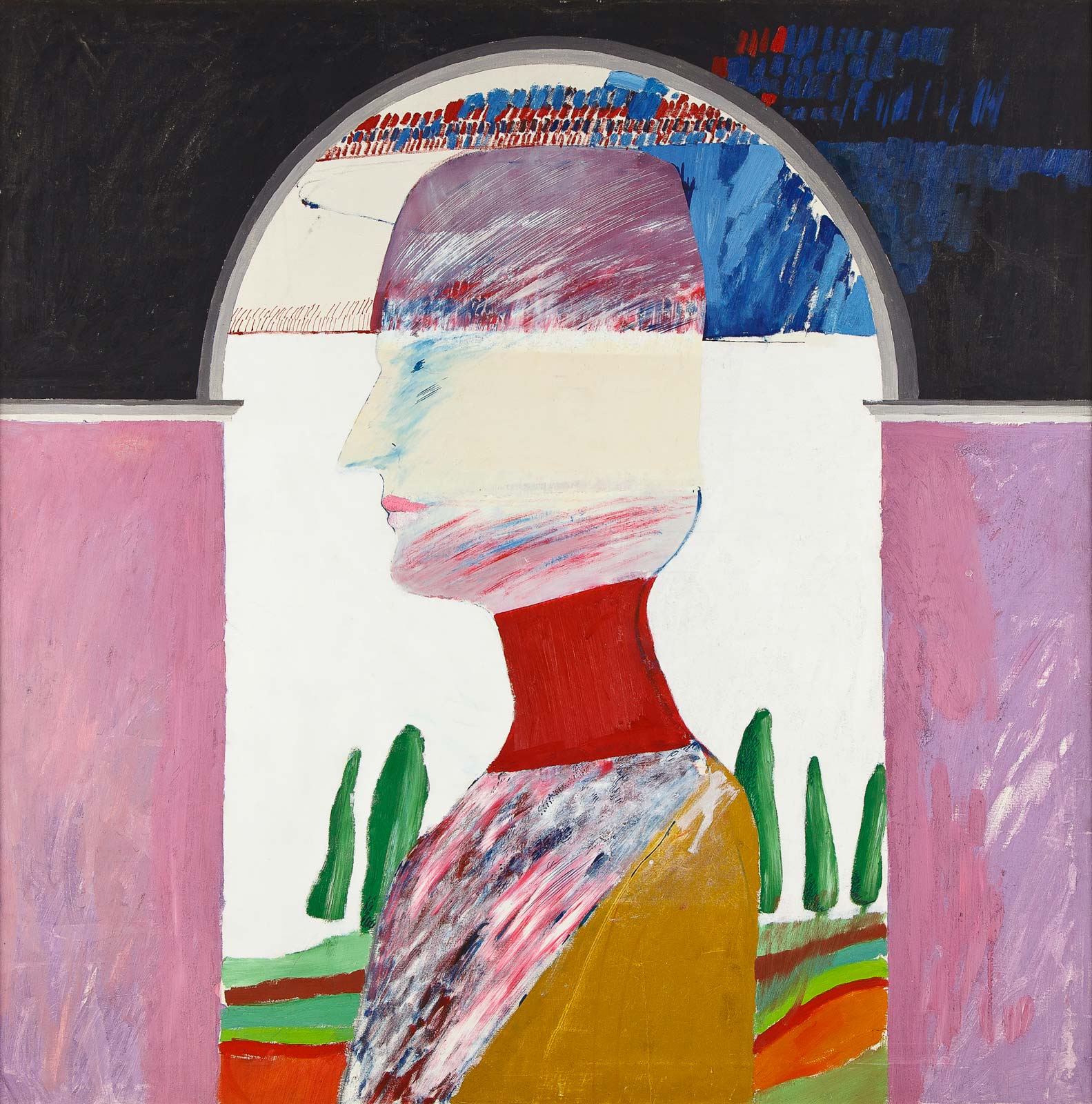
During the 1960s, the first groups of works purchased for the Collection included the names of key figures in the national and international art scene, such as Amadeo de Souza Cardoso, José de Almada Negreiros and Maria Helena Vieira da Silva. The British artworks were mostly acquired between 1960 and 1965, featuring major names such as David Hockney, Bridget Riley and Peter Phillips.
The desire to build a space to house this burgeoning collection of modern art, which now included a significant number of national and international artists, was made official in 1979. The Modern Art Centre opened on 20 July 1983 with an innovative programme, giving Portugal its very first museum dedicated to the promotion of 20th-century art.
The Collection grew exponentially from then on, leading to the purchase of works by a diverse range of artists in a plethora of media and supports. Built up over more than 60 years, the CAM Collection is the result of encounters, intimacies, rifts, aesthetic relationships and different artistic languages.
Award for Civic Arts Organisations
 Over 300 nominations for the award
Over 300 nominations for the award
The Foundation will continue to support Civic Arts Organisations, notably through the Award for Civic Arts Organisations, which for the third year running recognises the vital role of the arts for society and encourages arts organisations to make an impact on communities in creative and inspiring ways.
In the 2023 edition, the Award, which annually encourages the arts and culture sector to embrace its civic role, will honour organisations that employ creativity to help communities better address the challenges they face.
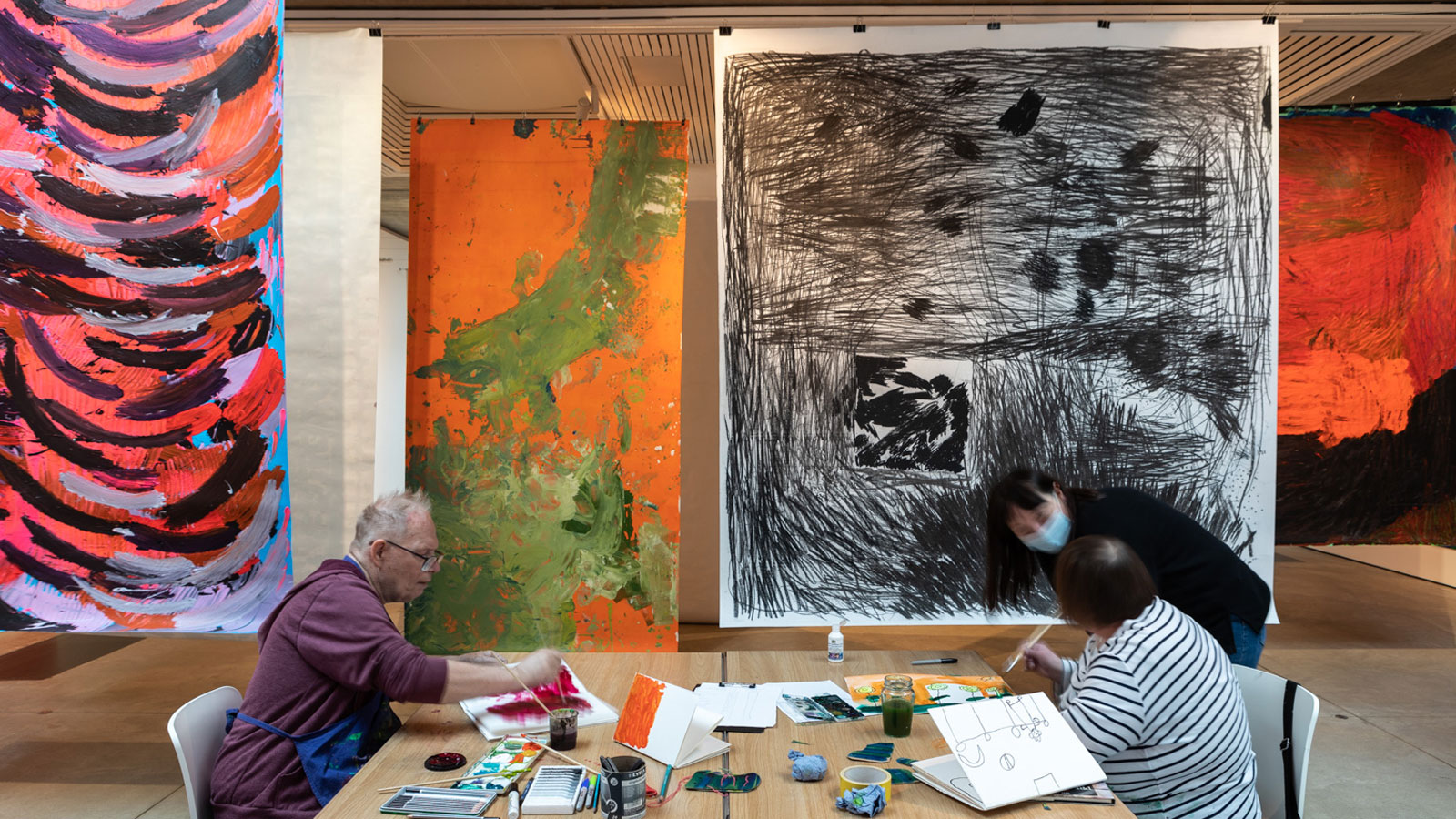
In 2022, The Art House won the main award; In Place of War CIO and Project Art Works were also distinguished. All three organisations were recognised for their exceptional work in harnessing the transformative power of the arts in the most vulnerable communities, particularly during the Covid 19 pandemic.
The civic arts movement (in the UK but also internationally) and the key role of arts organisations in society has been growing according to the report The Pulse of the Movement: Civic Arts Organizations in 2021, which in 2022 looked at the nominations received and sought to better understand the organisations’ work with communities. The Foundation hopes to continue contributing to this worthy goal.
Bolsas Gulbenkian Mérito
 More than 800 students supported
More than 800 students supported
The year 2023 will be remembered for the increased support given to high-potential young people from less privileged backgrounds who apply to the first year of higher education. Scholarships were created with the purpose of distinguishing merit, providing better conditions for academic performance in higher education and supporting international mobility.
This year, the number of students supported more than doubled compared with the previous year, rising from 357 to more than 8oo.

The scholarships are intended for students of any nationality, with a minimum score of 17 in the test for accessing higher education. The scholarship is worth €2,000 for all selected students, with a single additional sum of €2,000 if the student attends a semester at a university abroad as part of an international mobility programme, an experience that will enrich their personal and educational journey. These scholarships also include a networking and soft skills development programme, with a view to fostering a spirit of mutual support among scholarship holders and a greater capacity to interact with others and with the world at large.
With the Bolsas Gulbenkian Mérito, the Gulbenkian Foundation will continue to promote the role of education and contribute to greater social equity, providing an opportunity to the brightest students and fostering their future impact on society.

